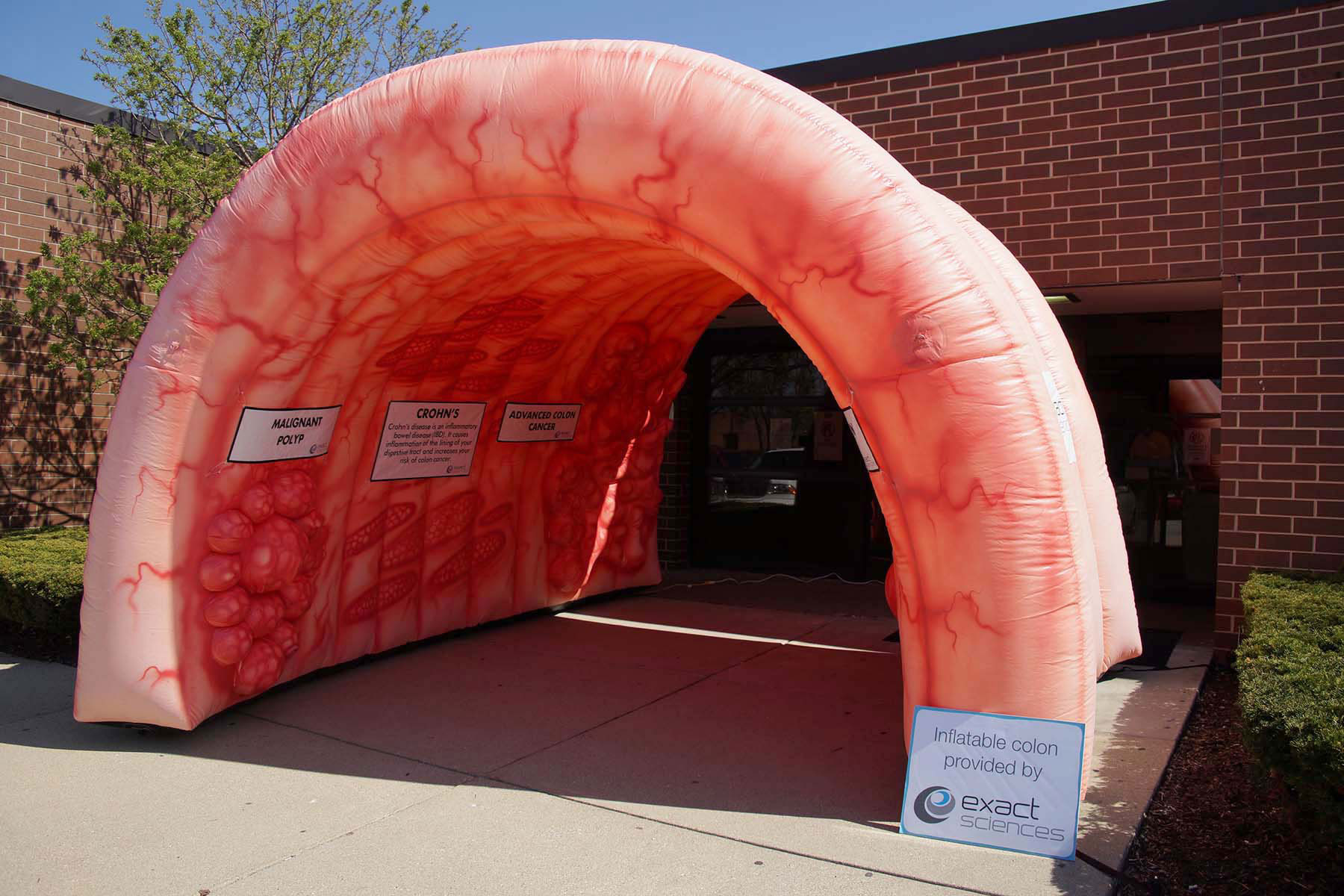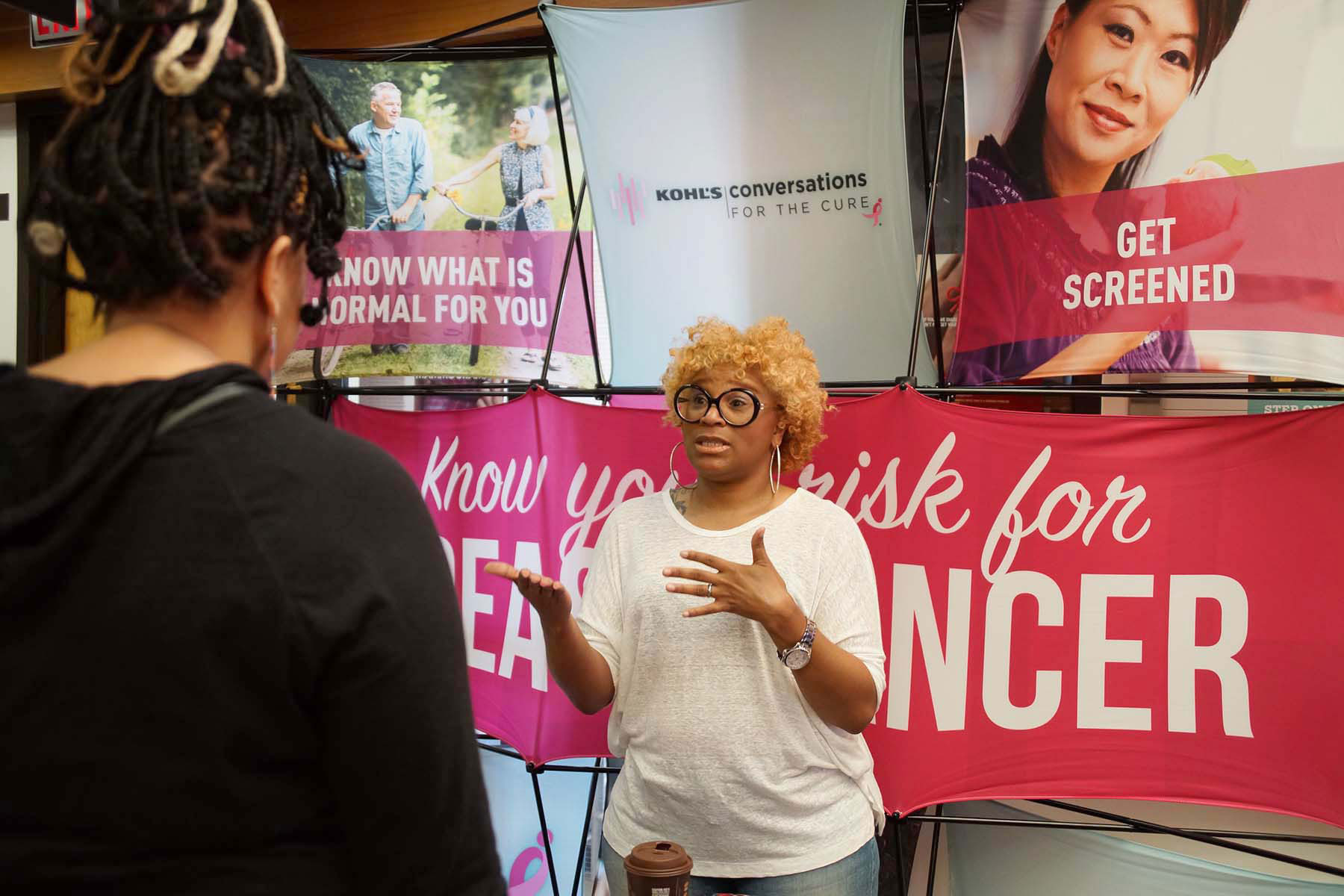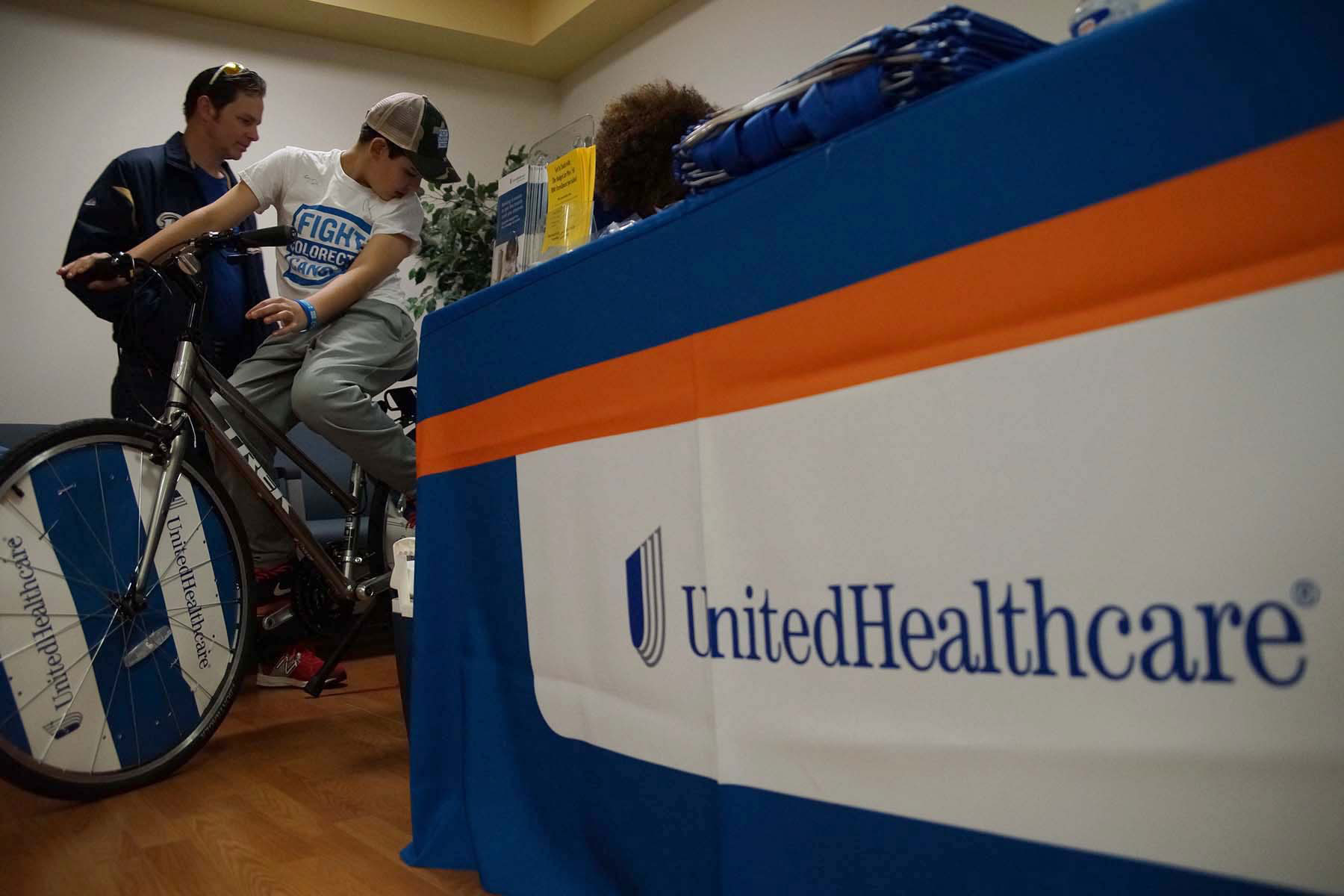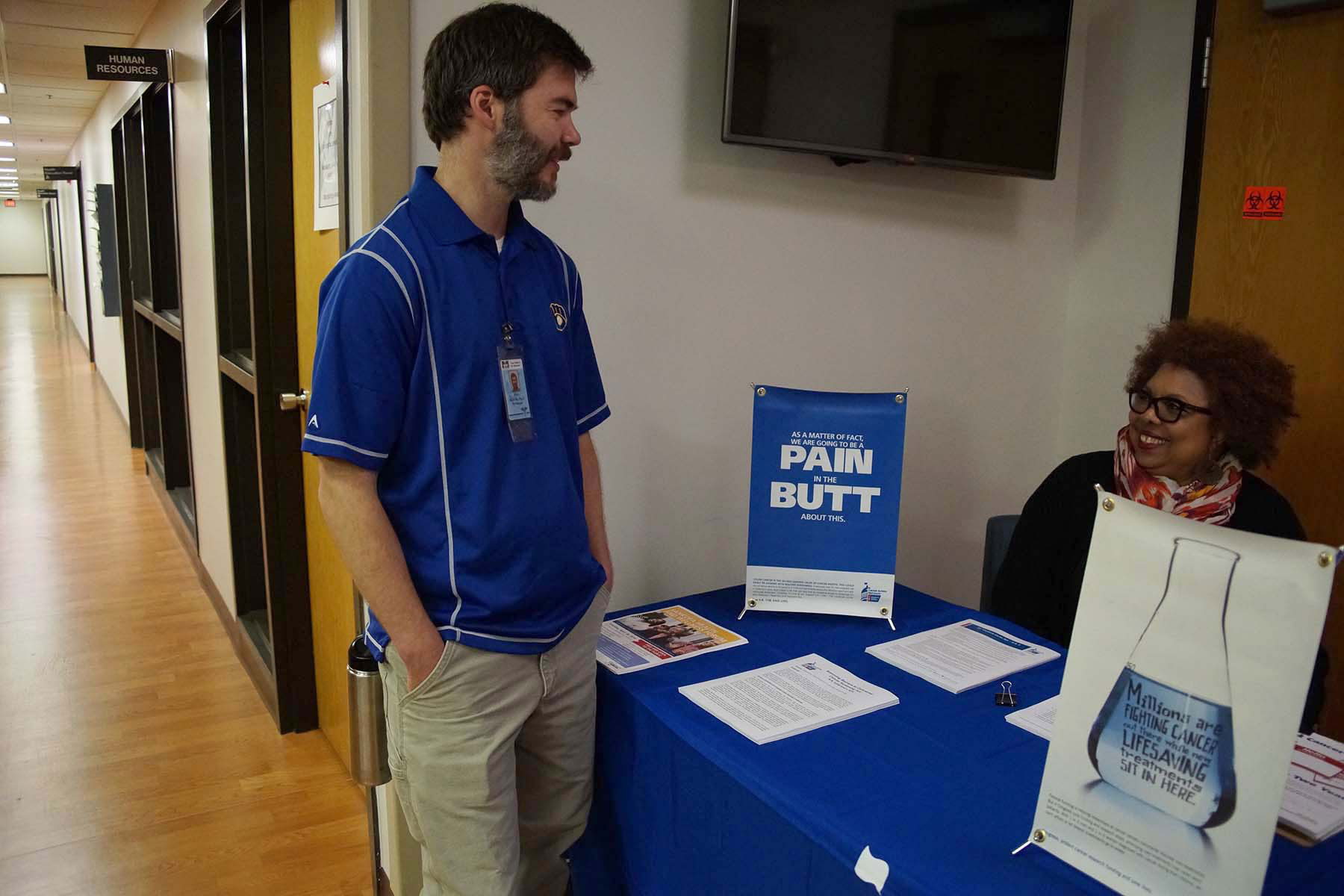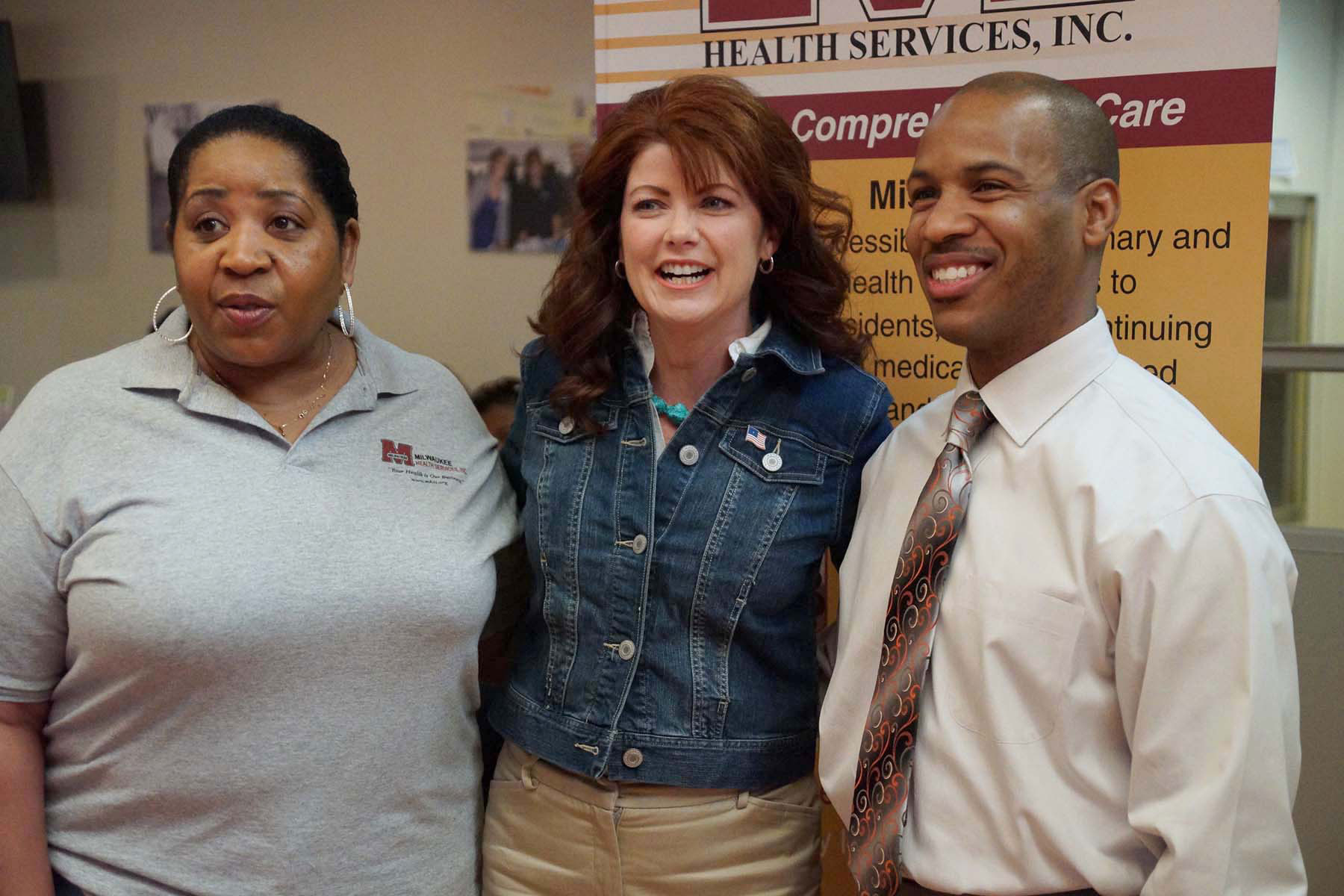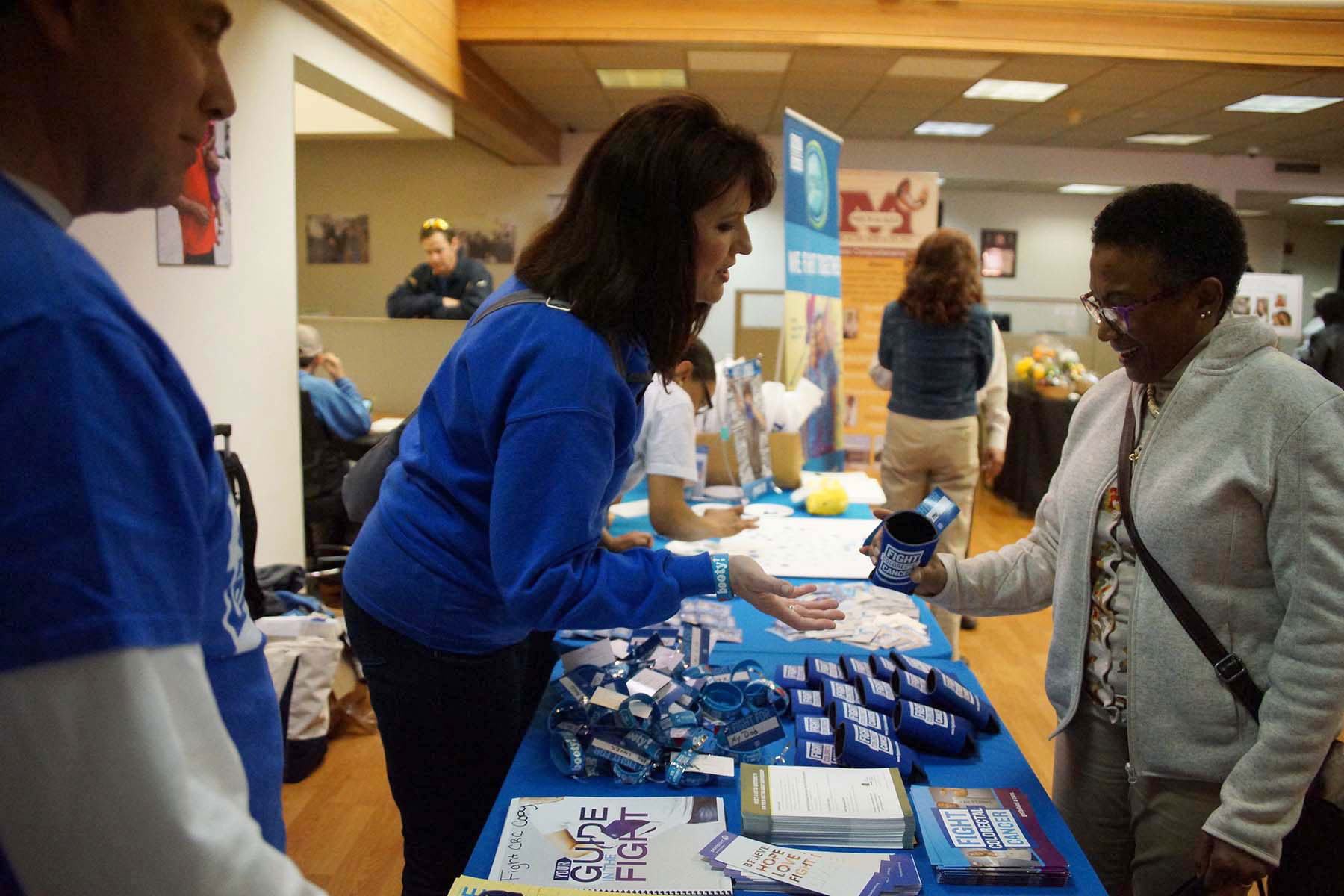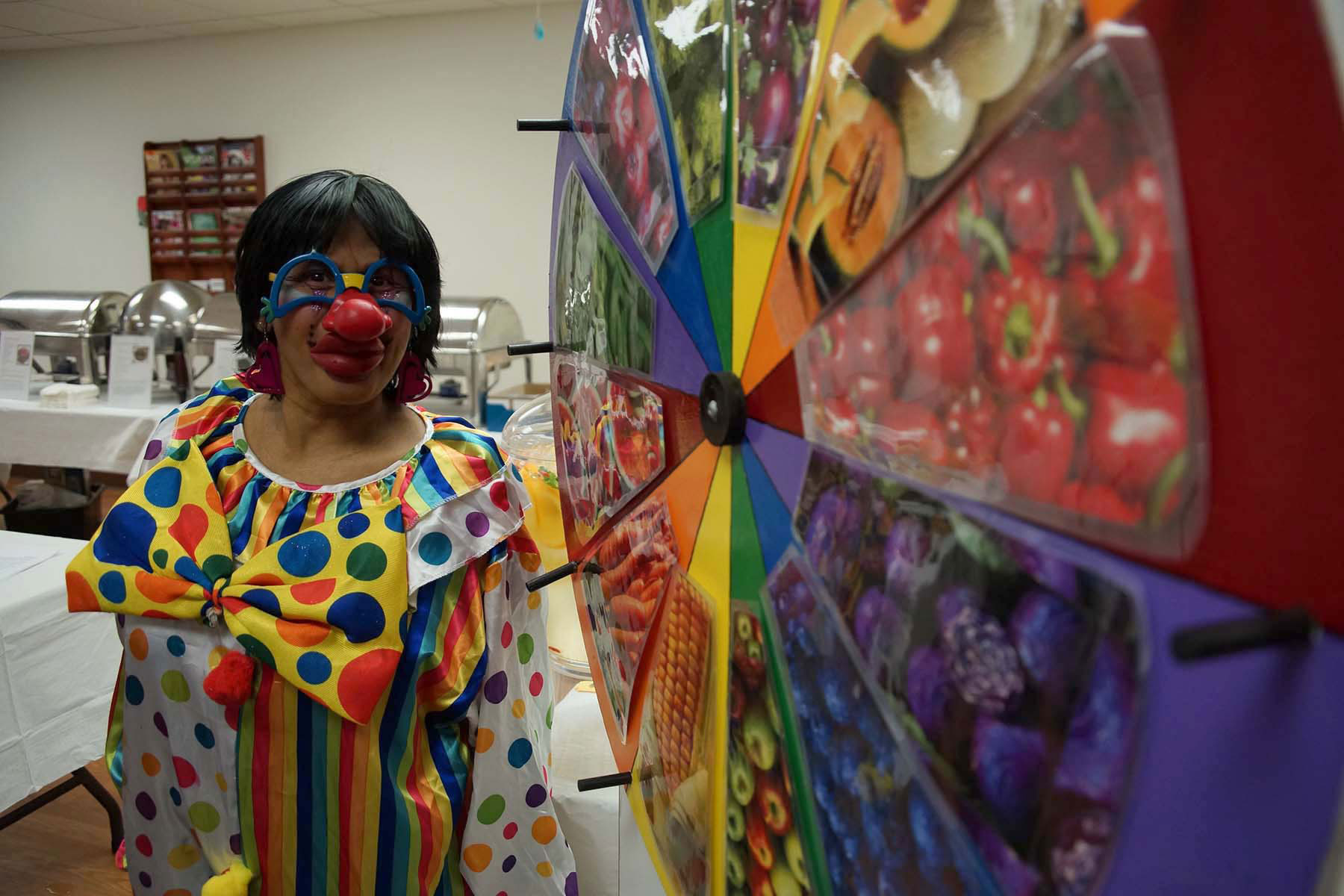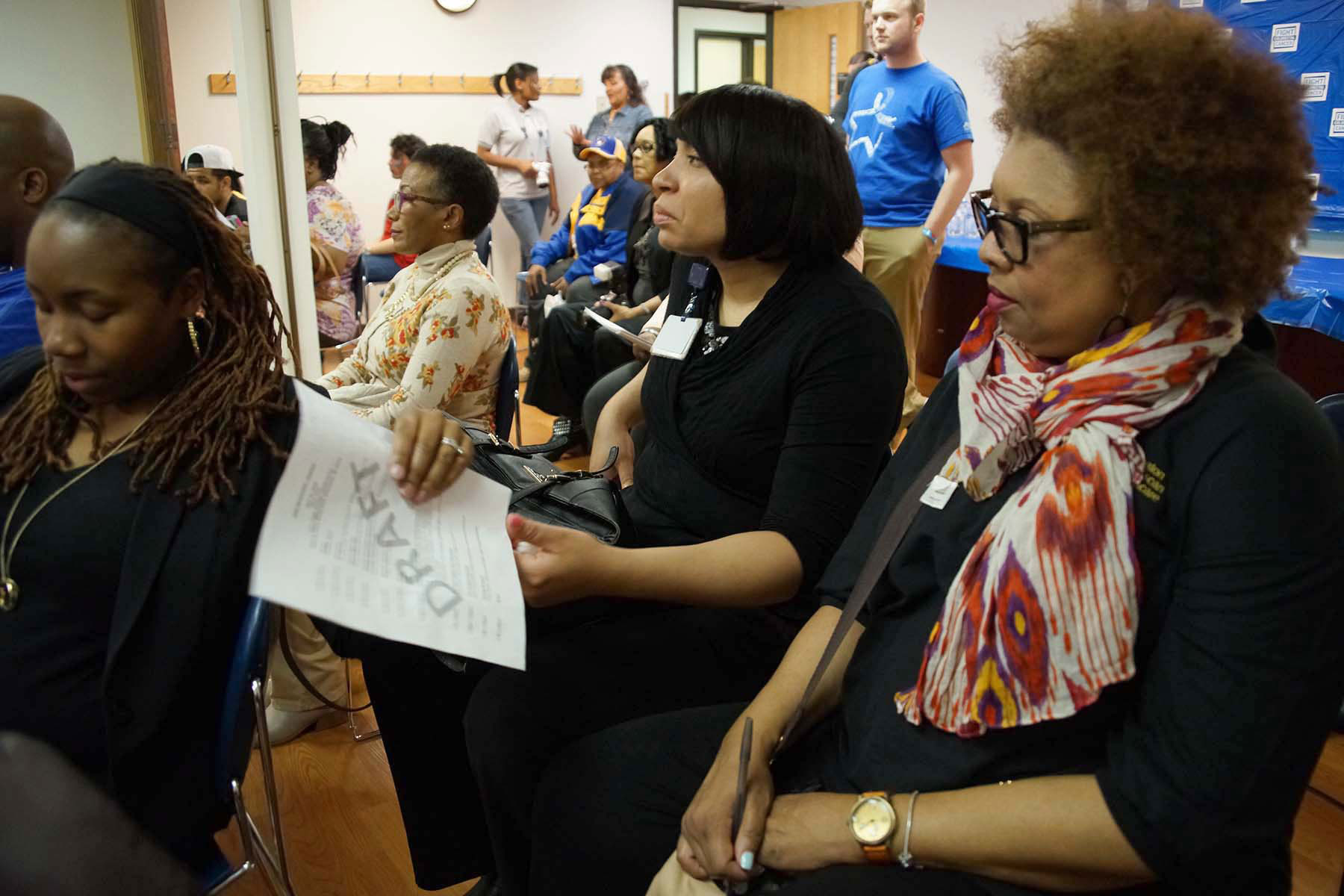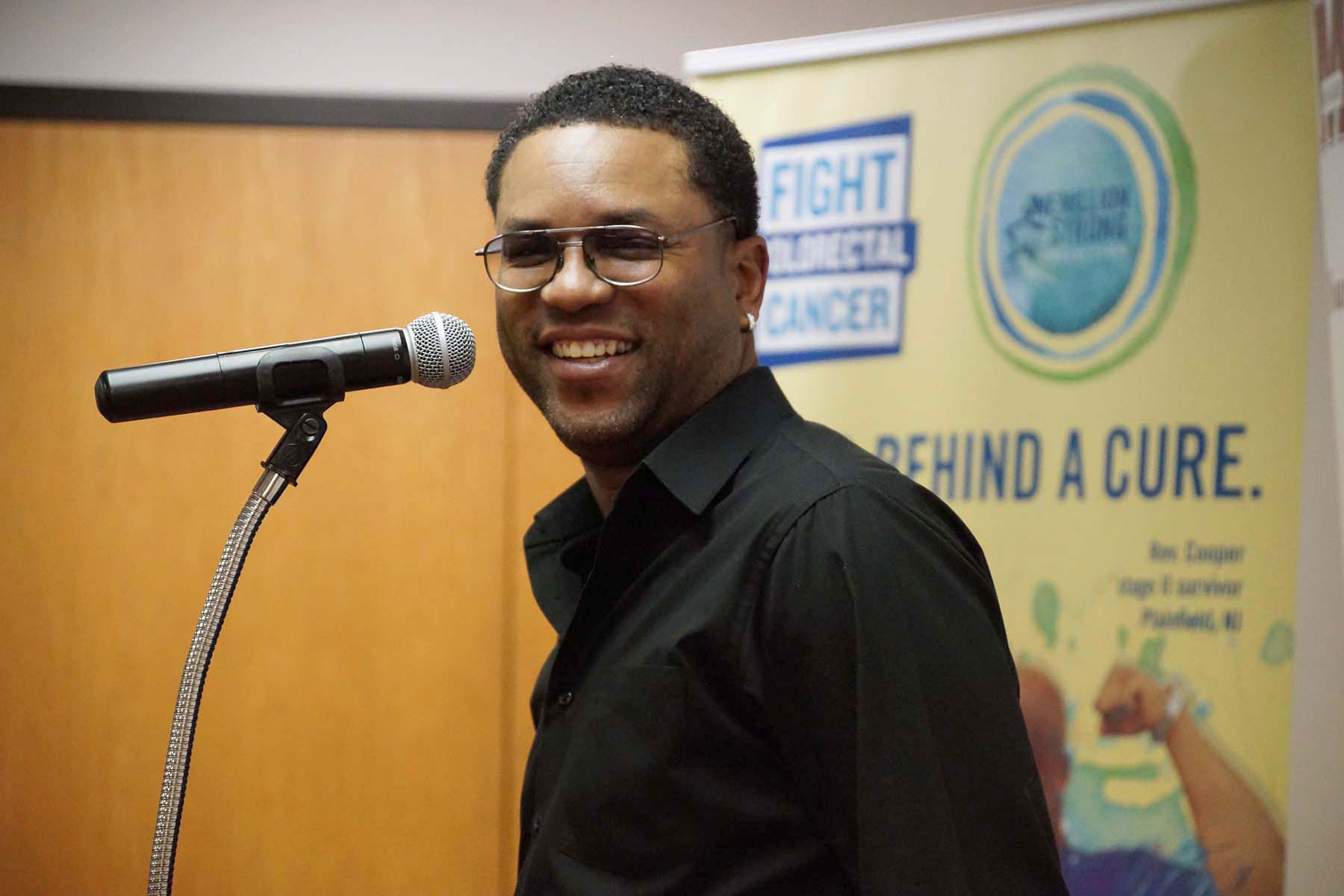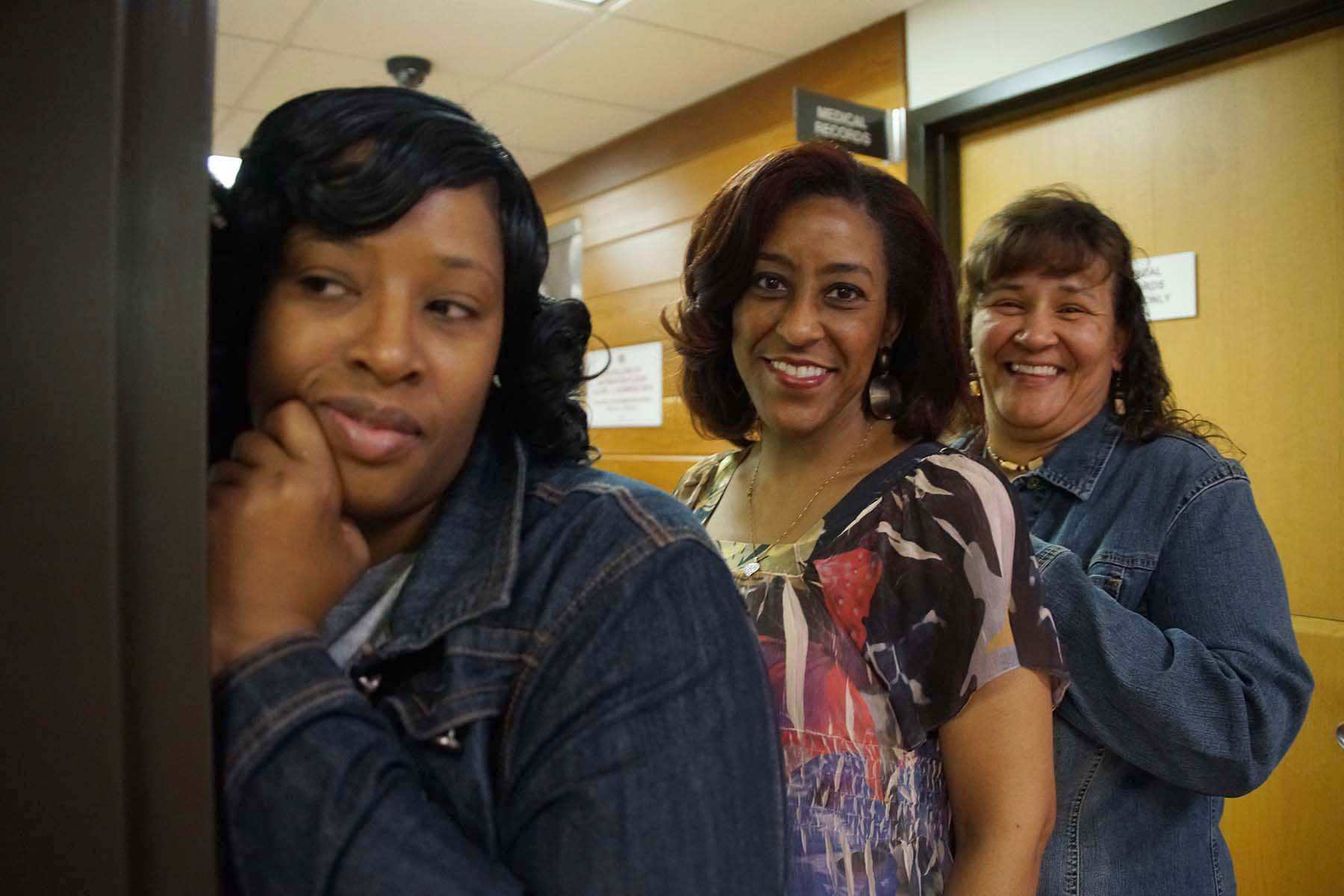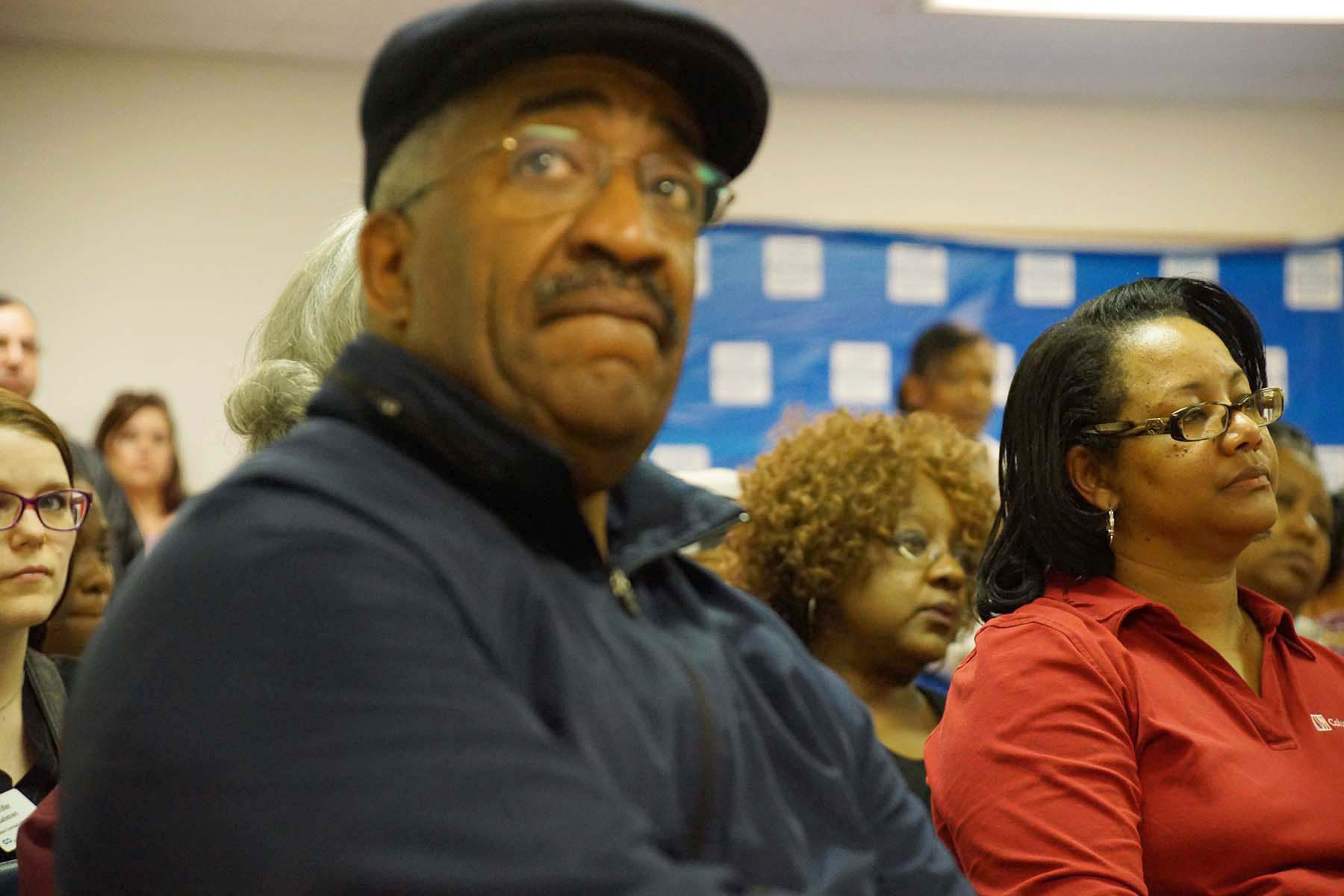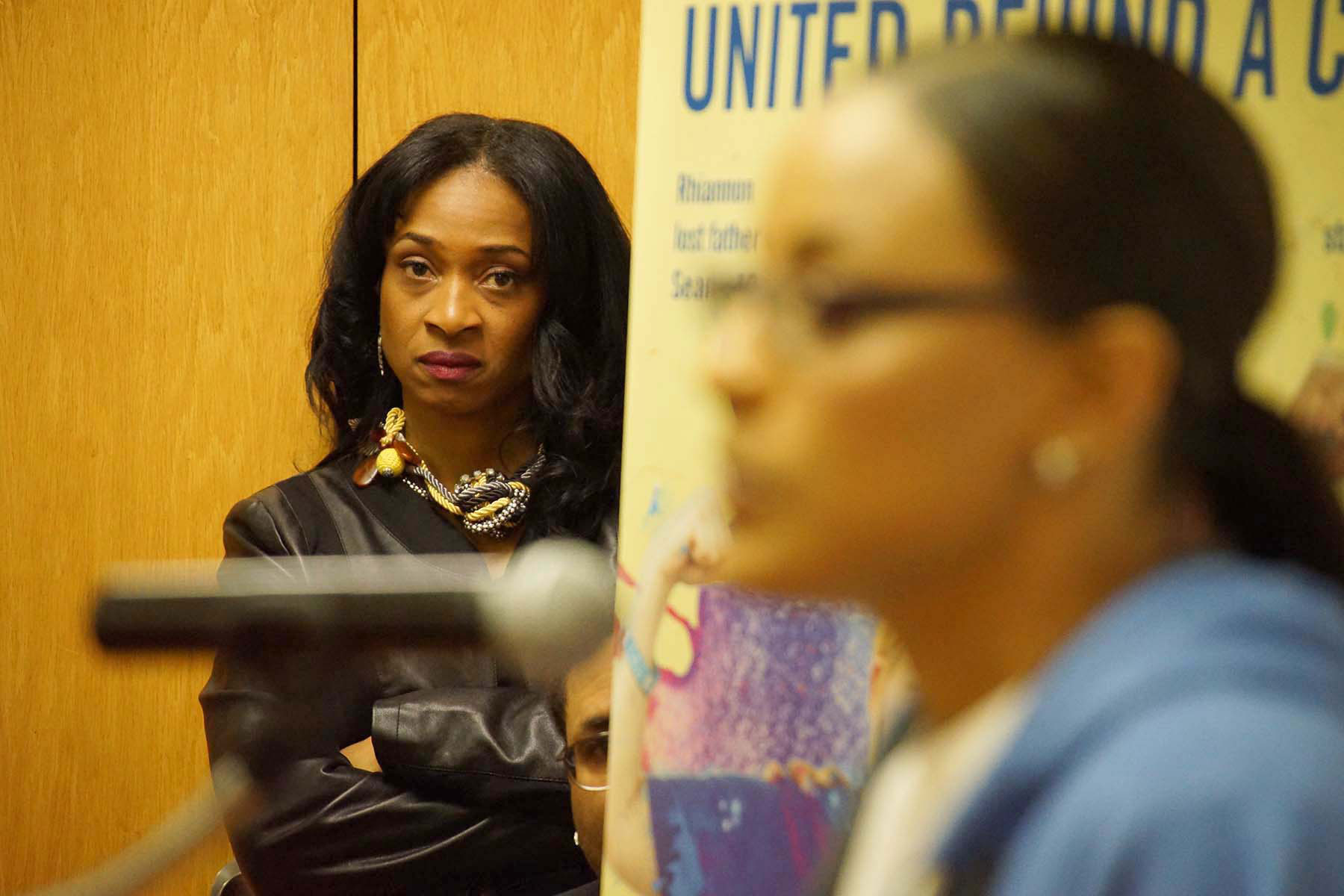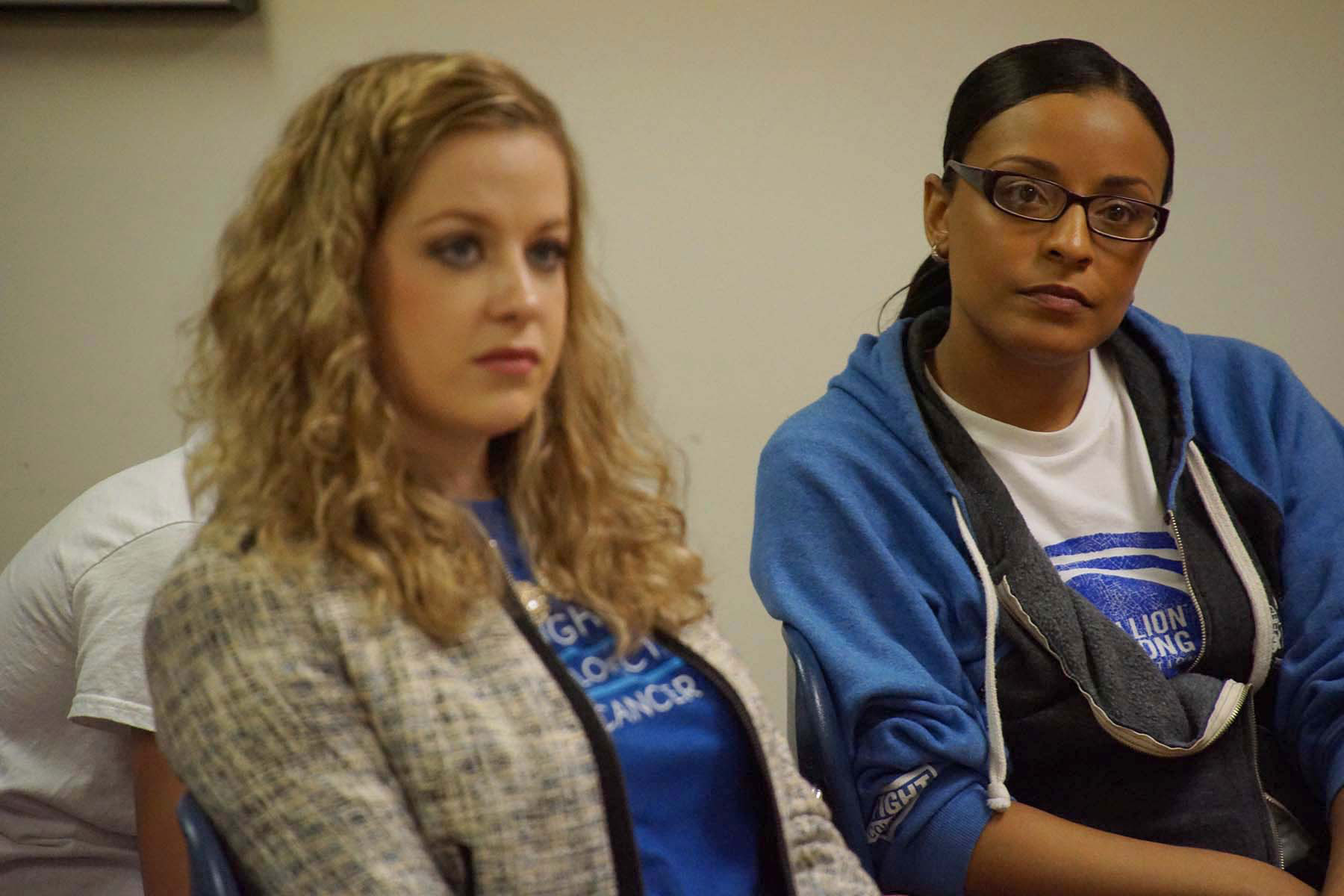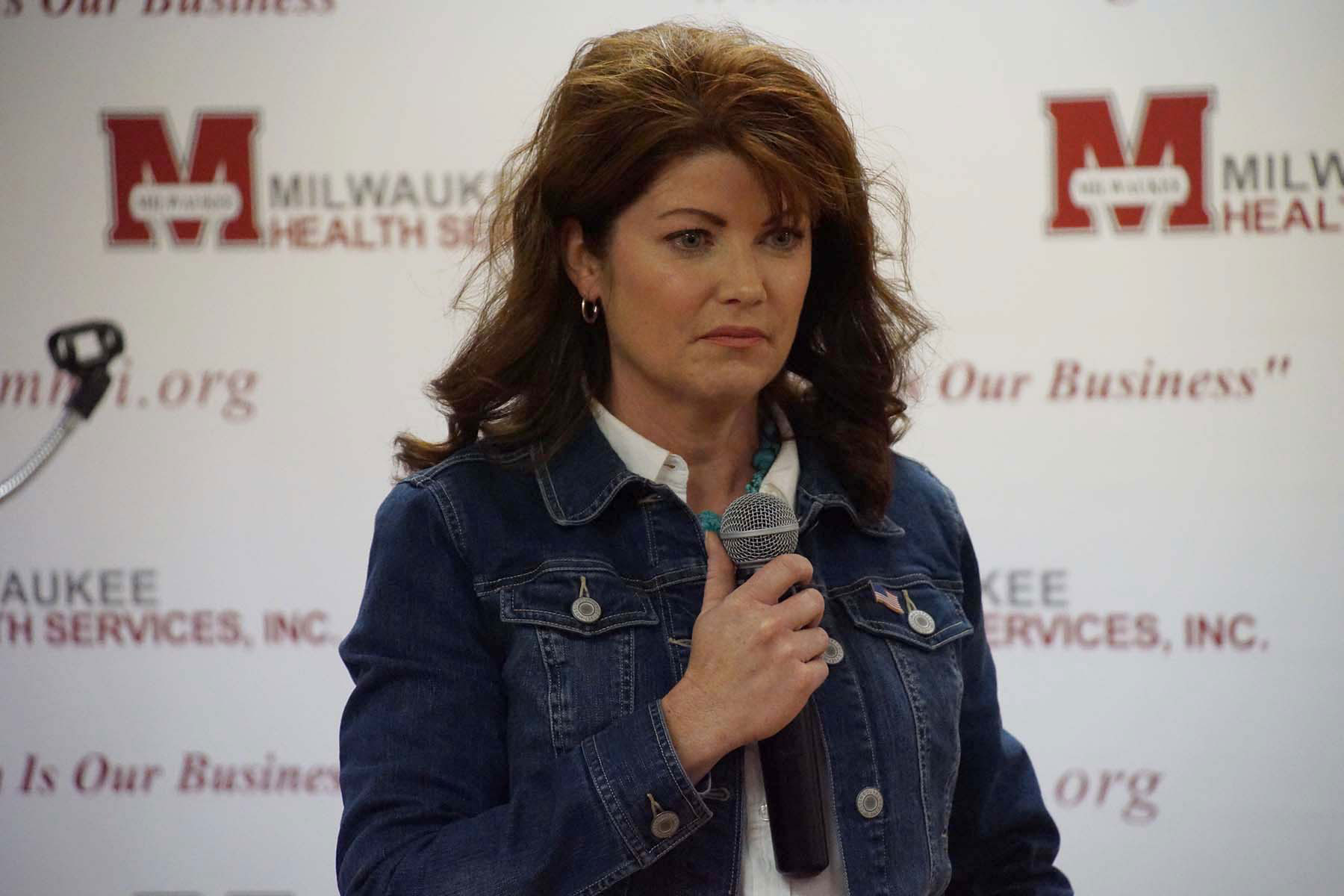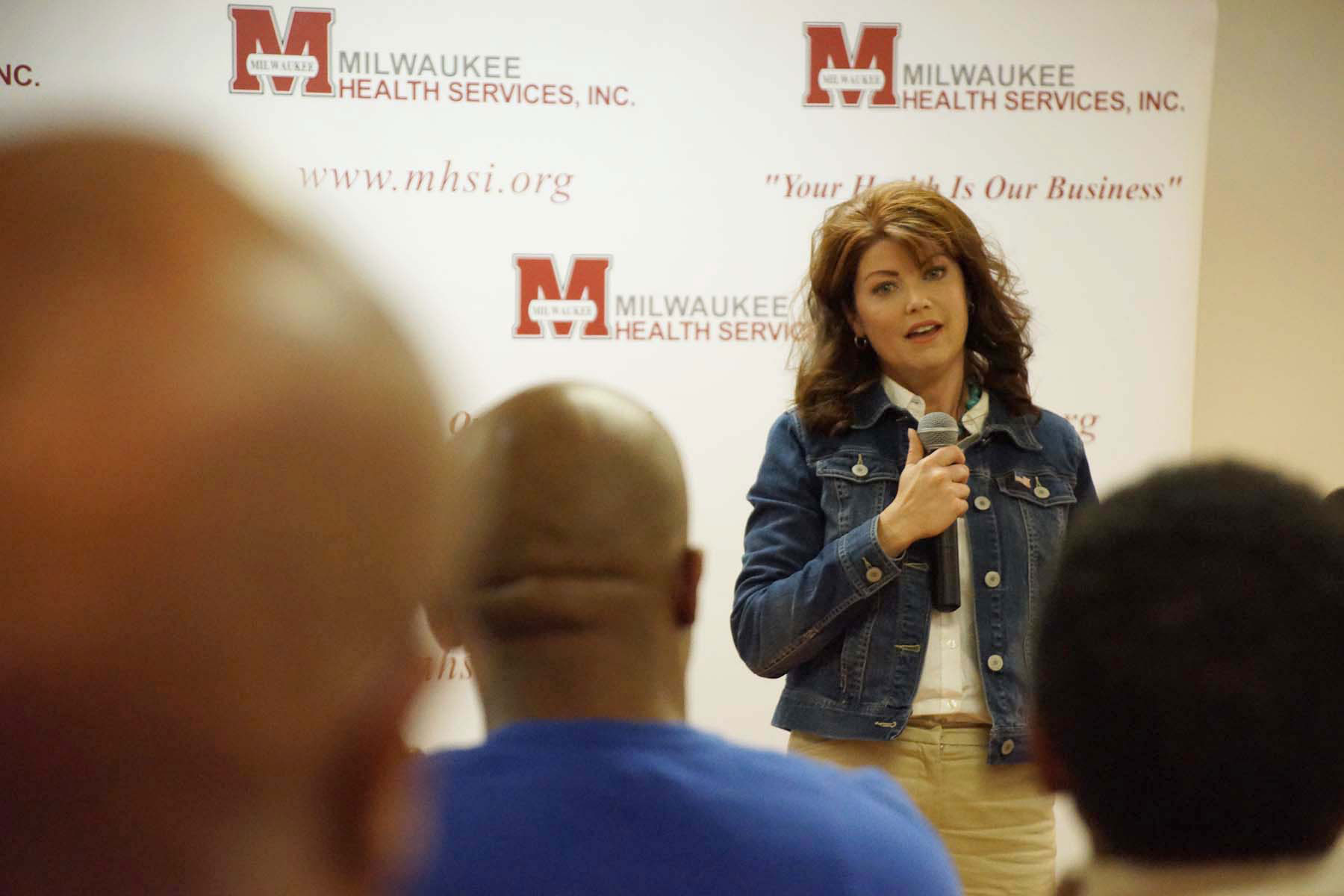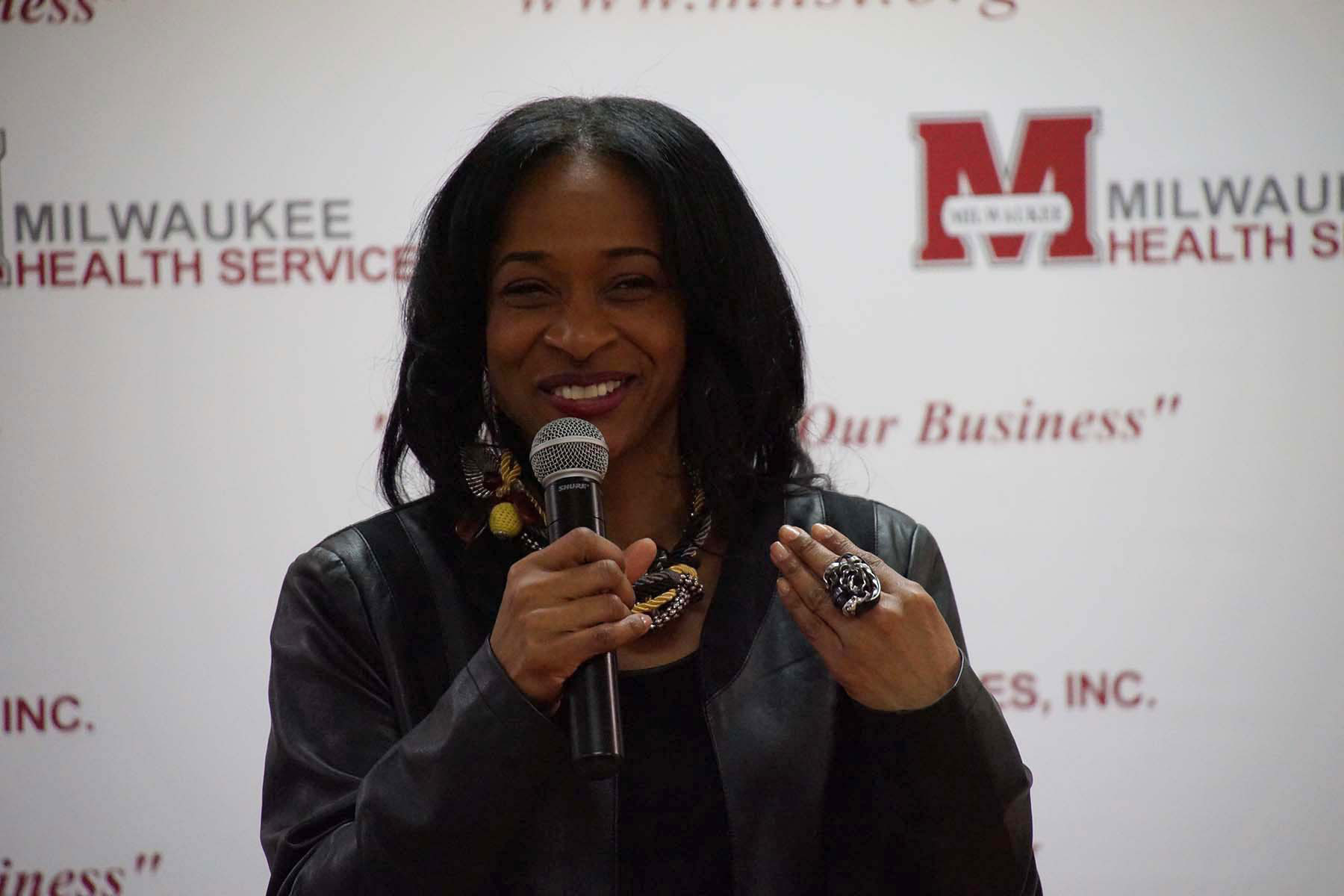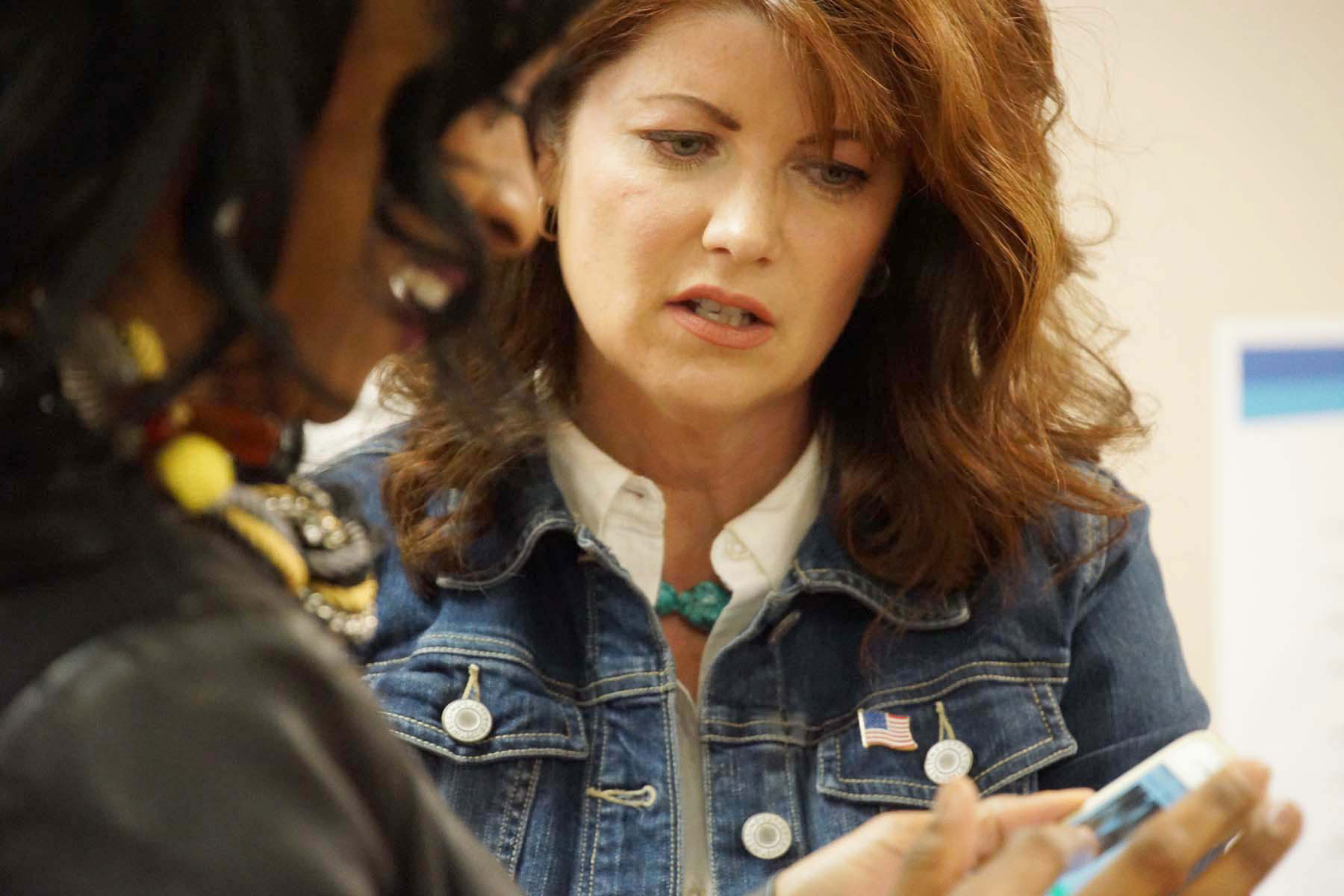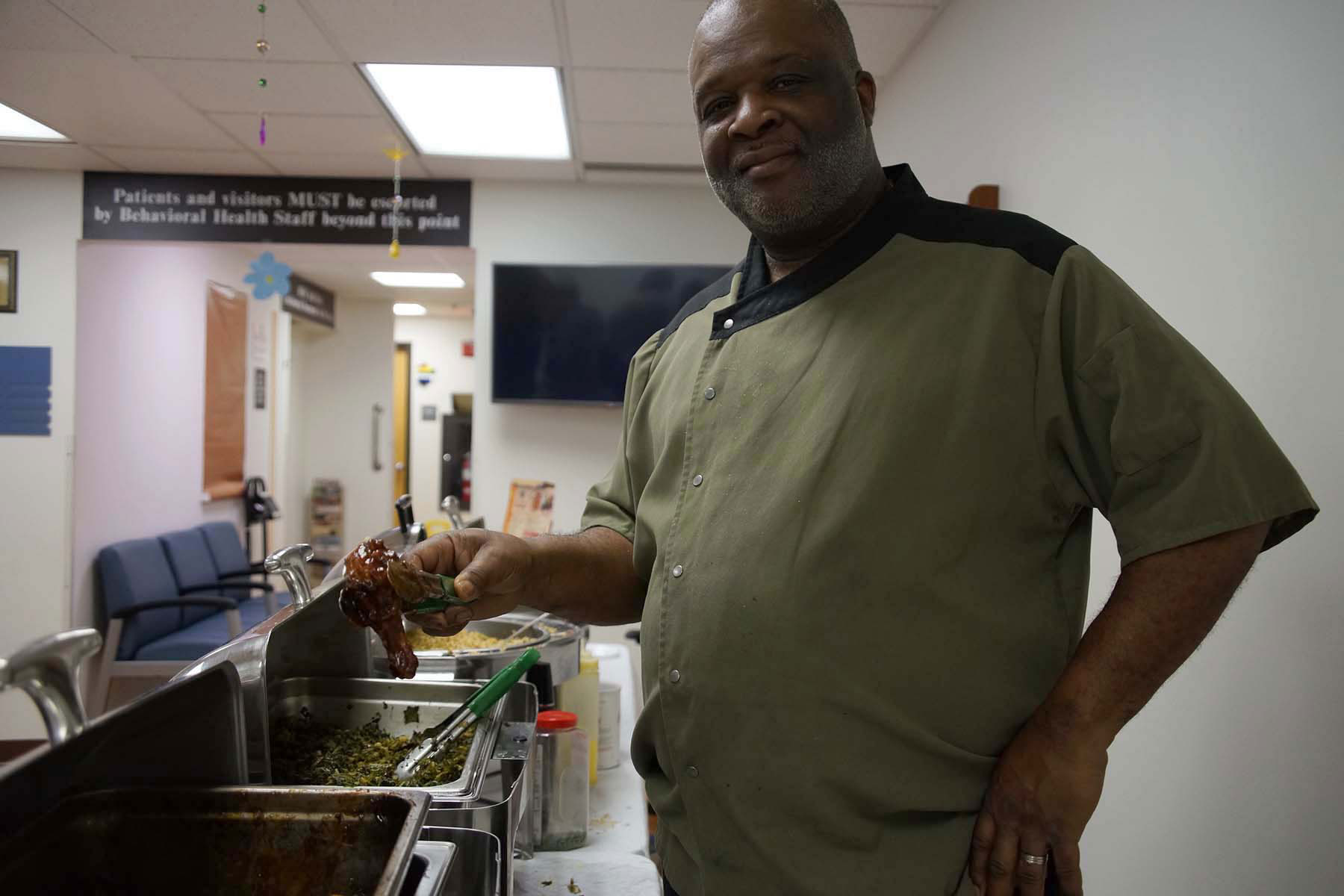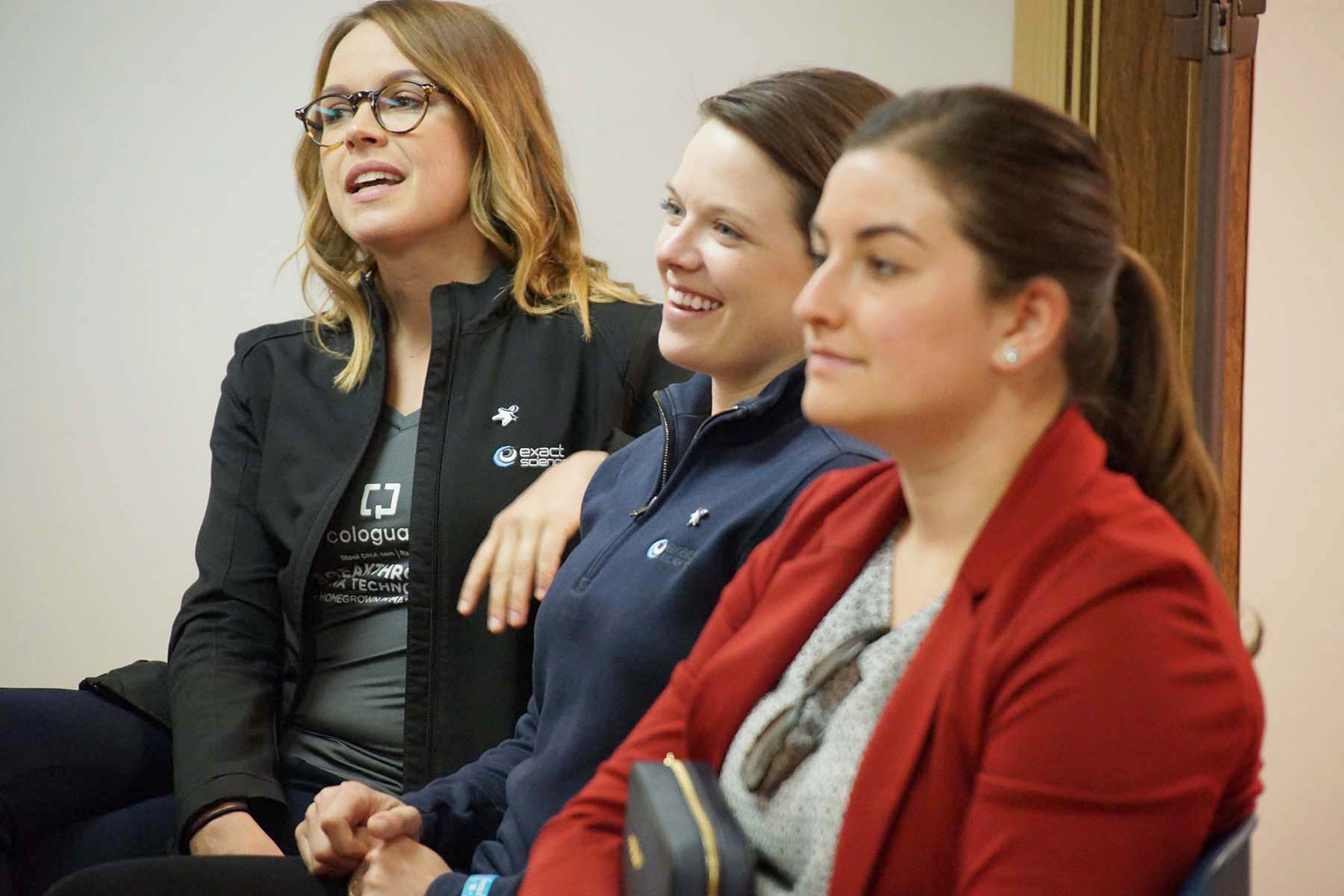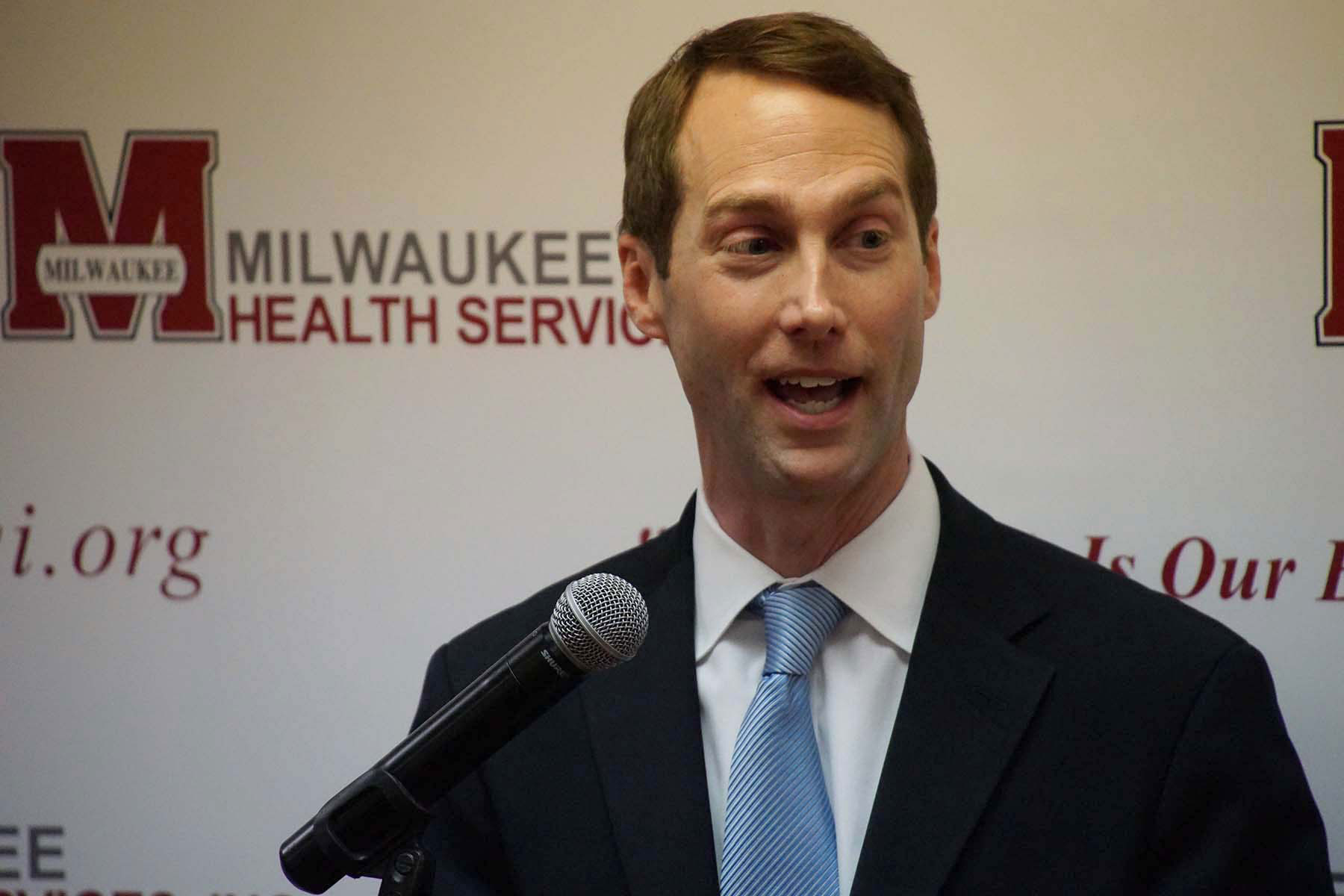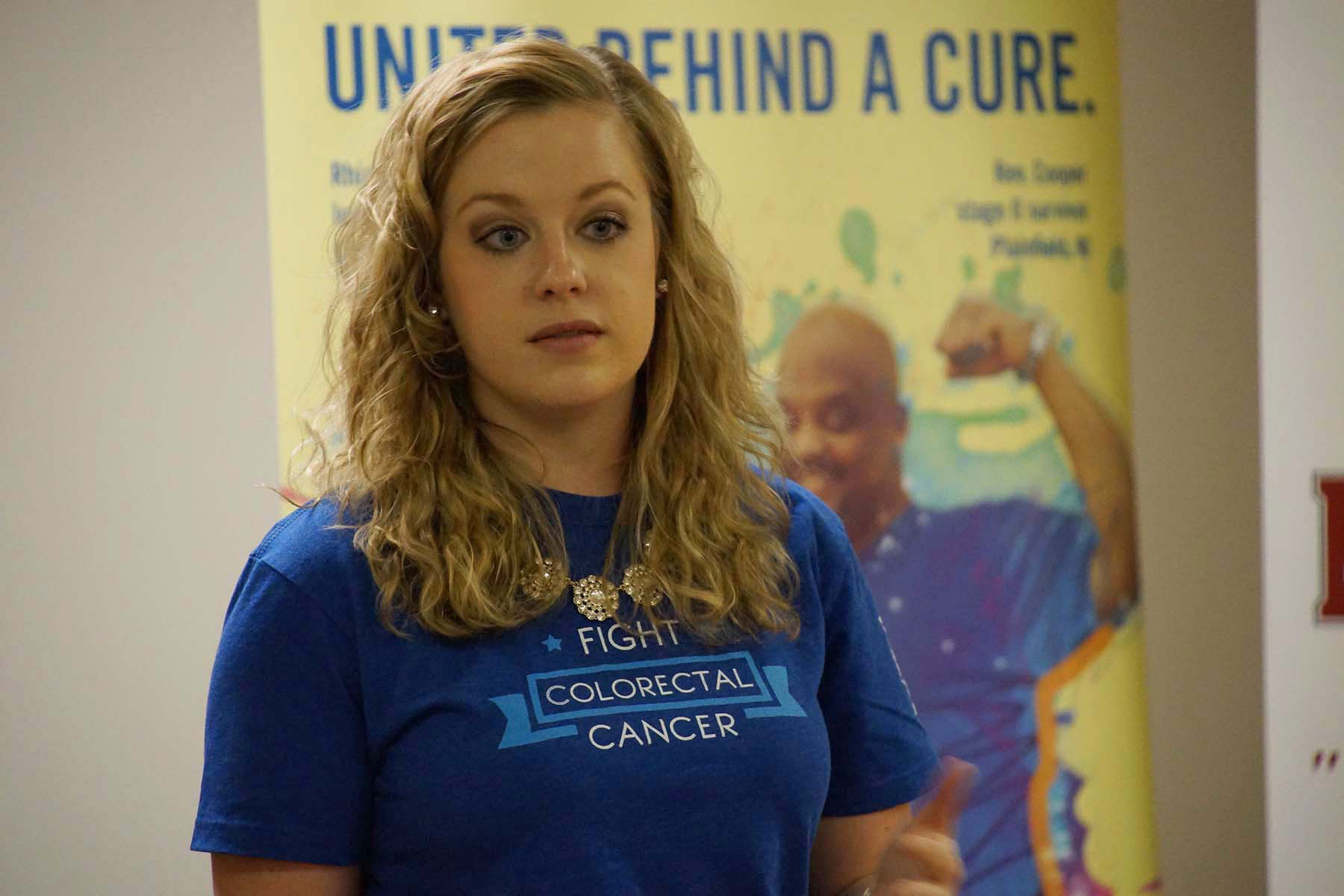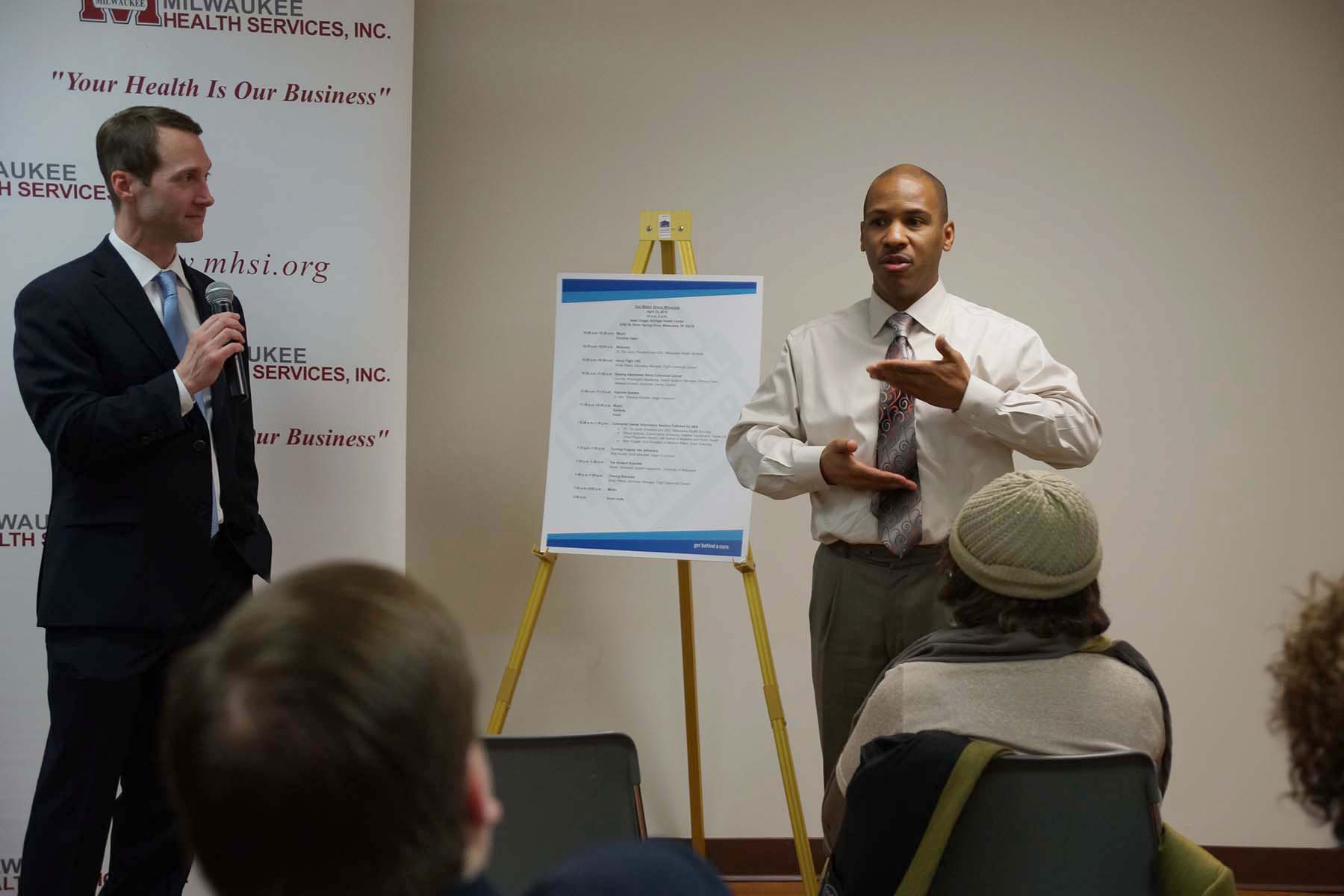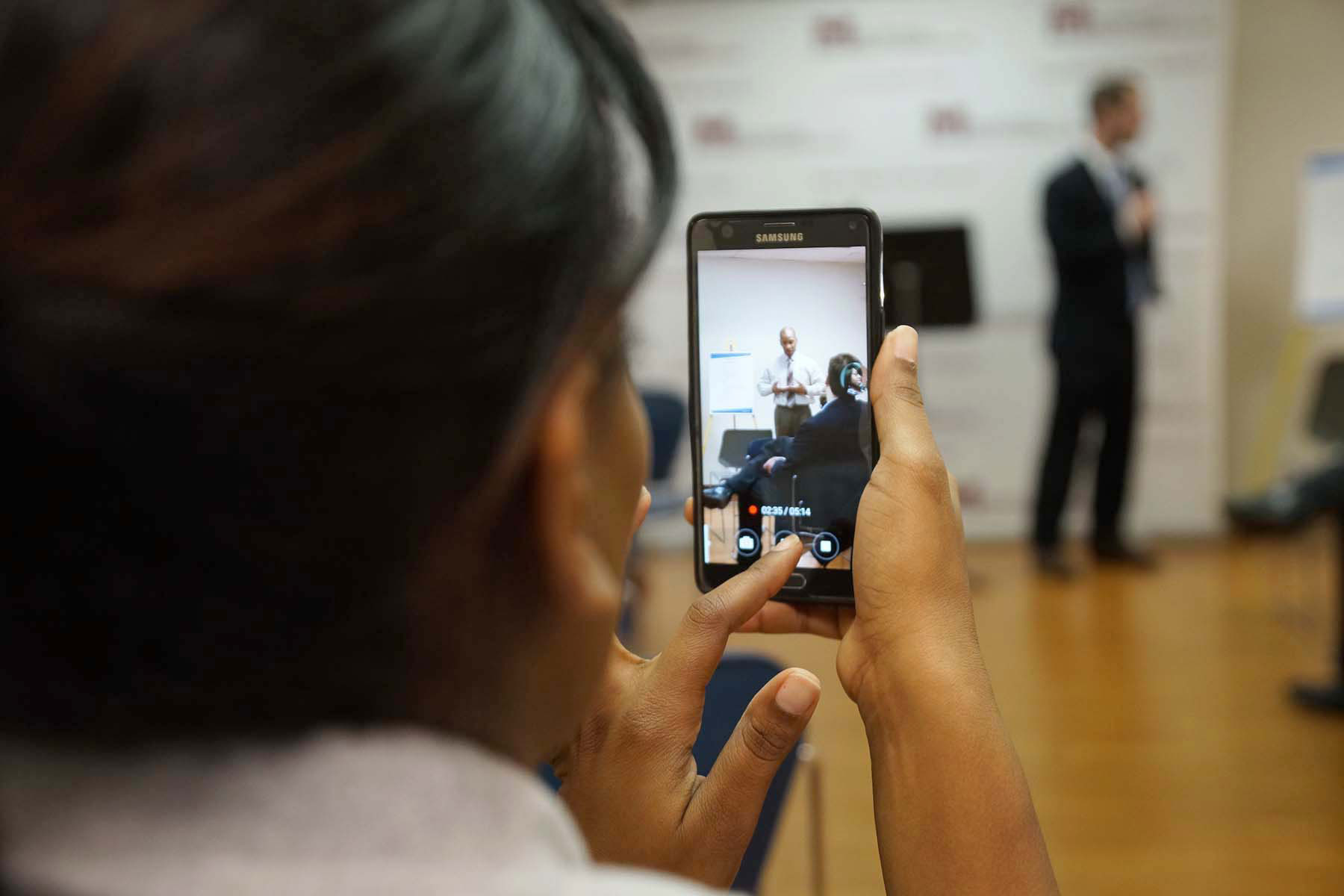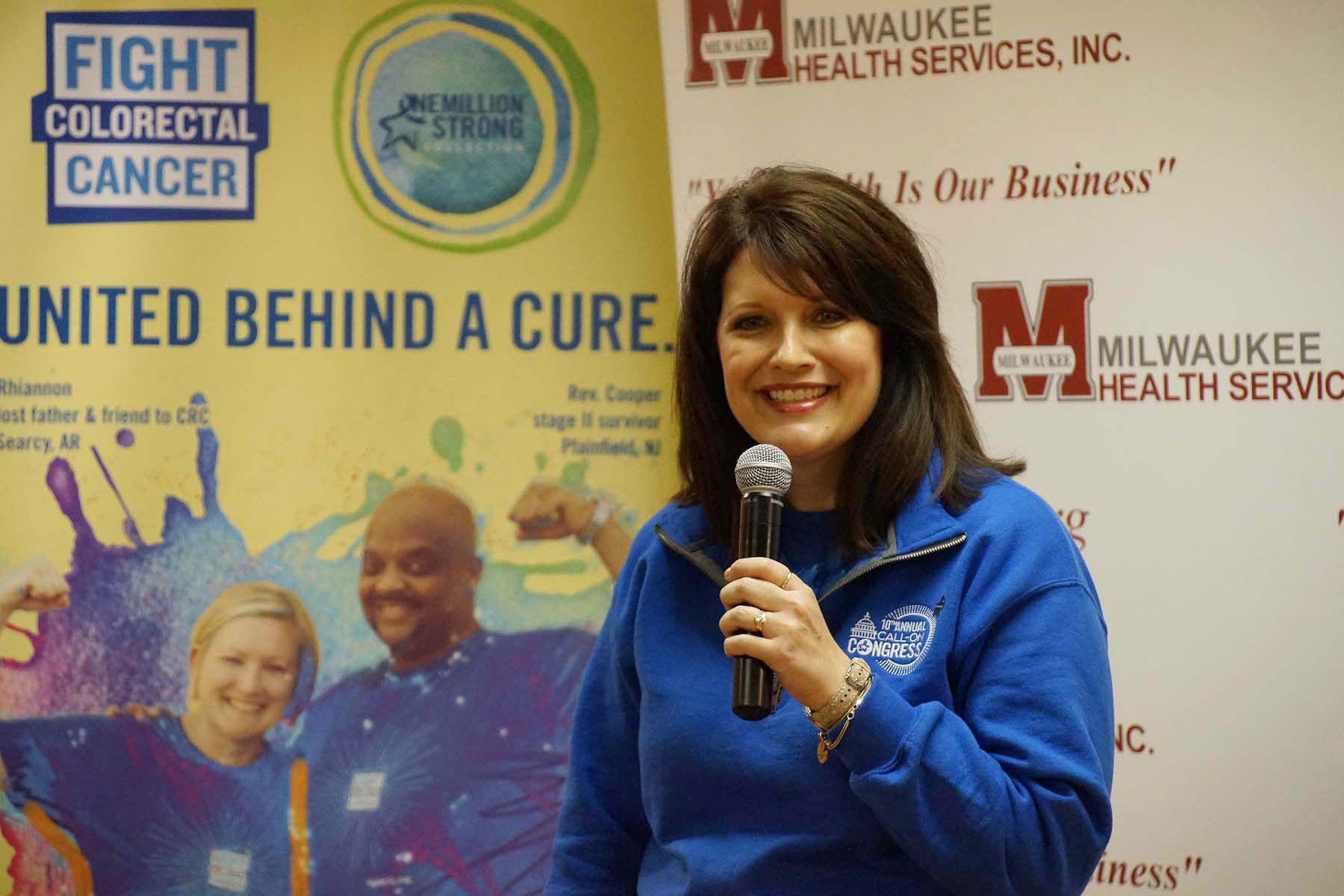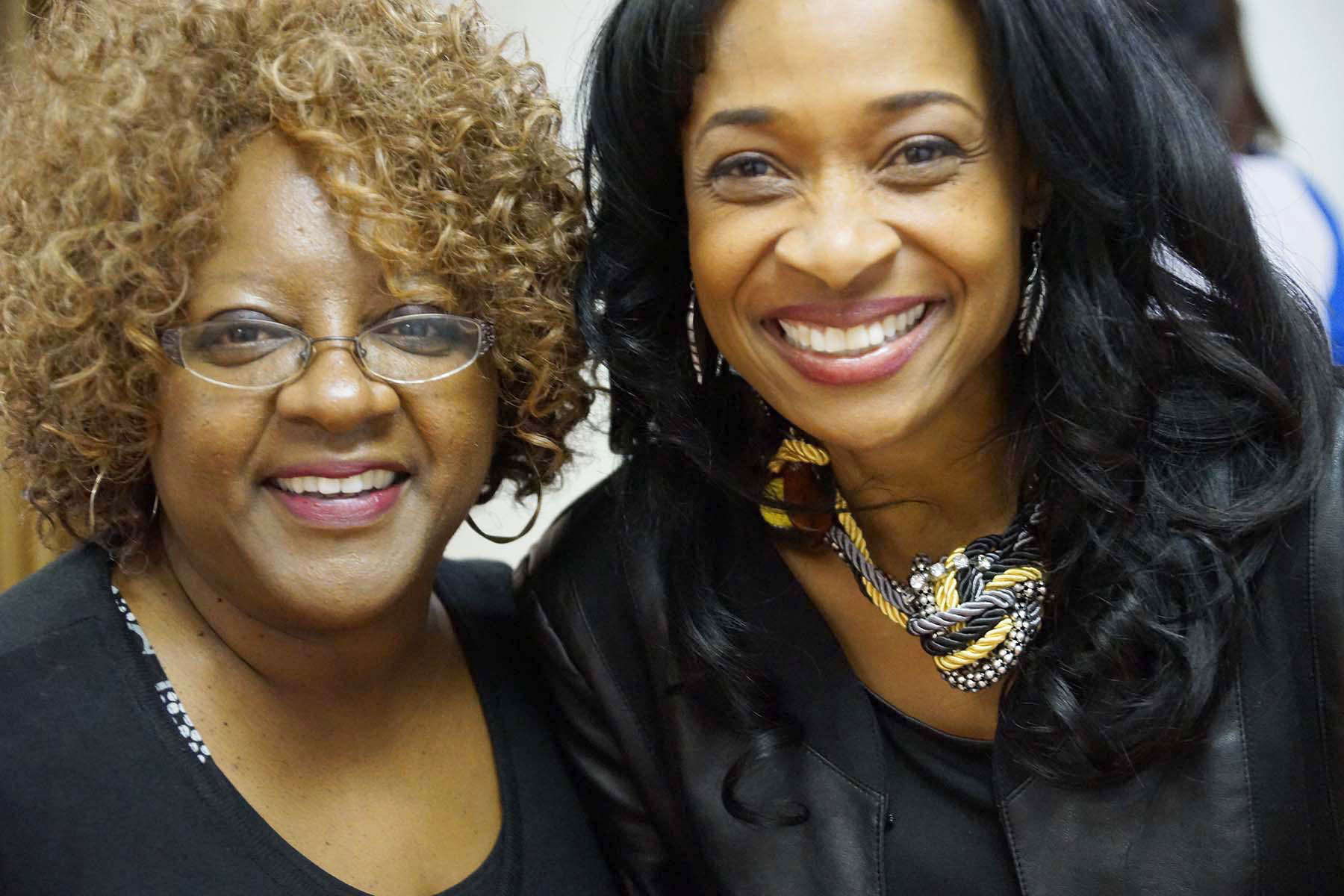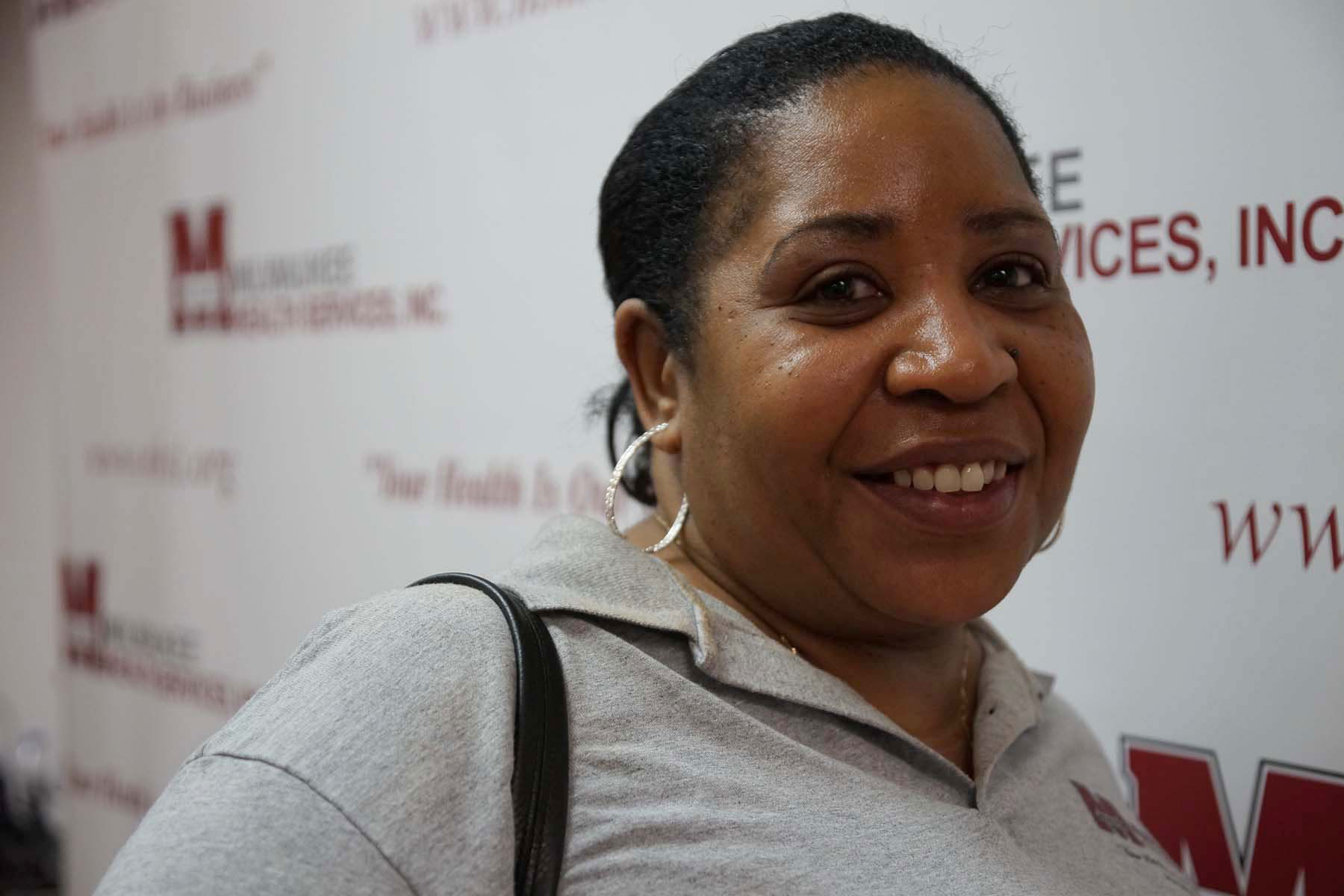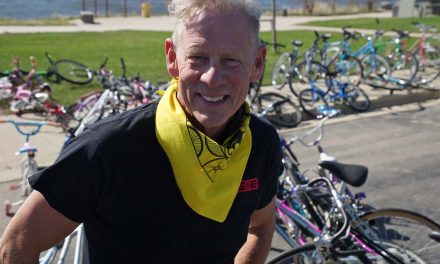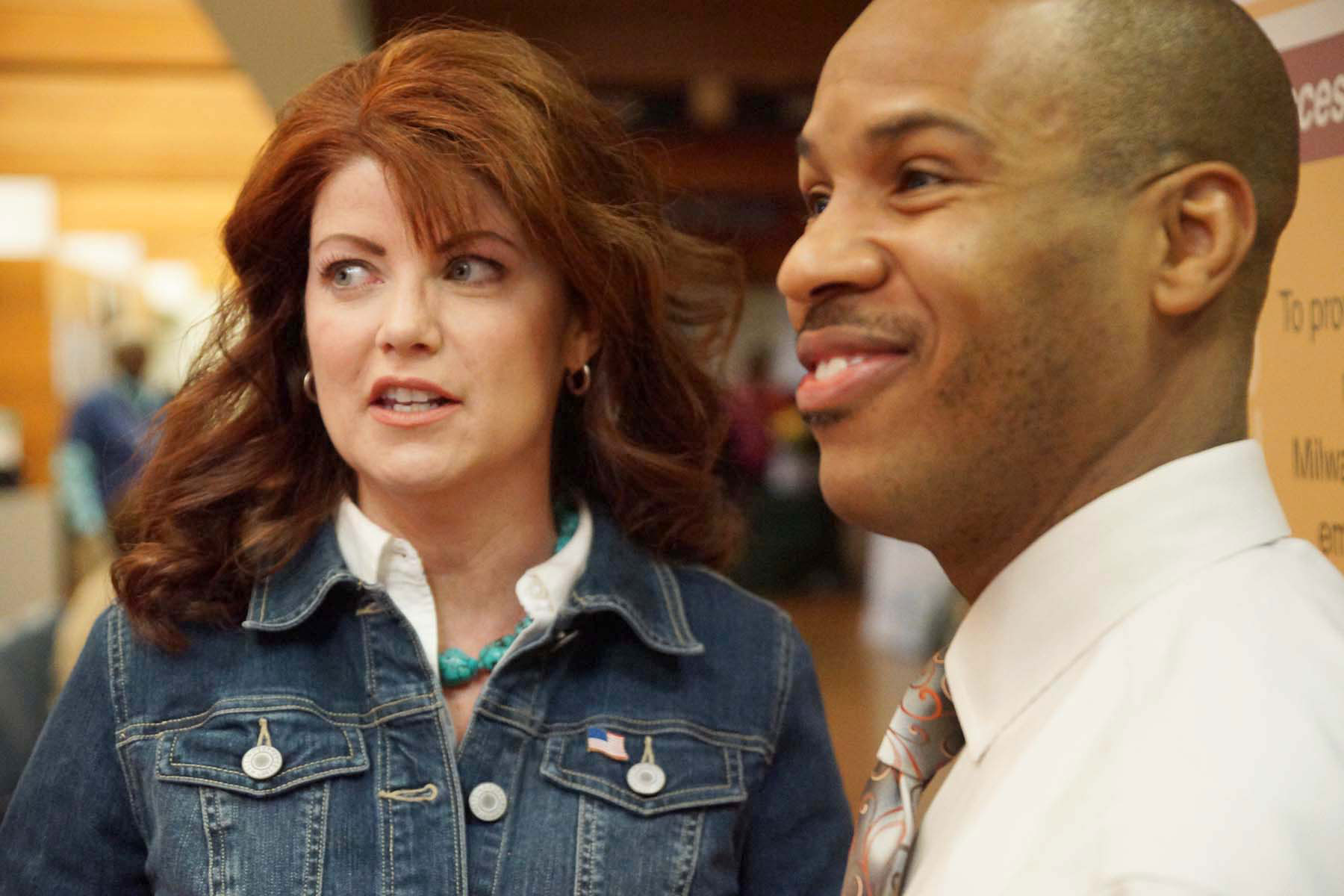
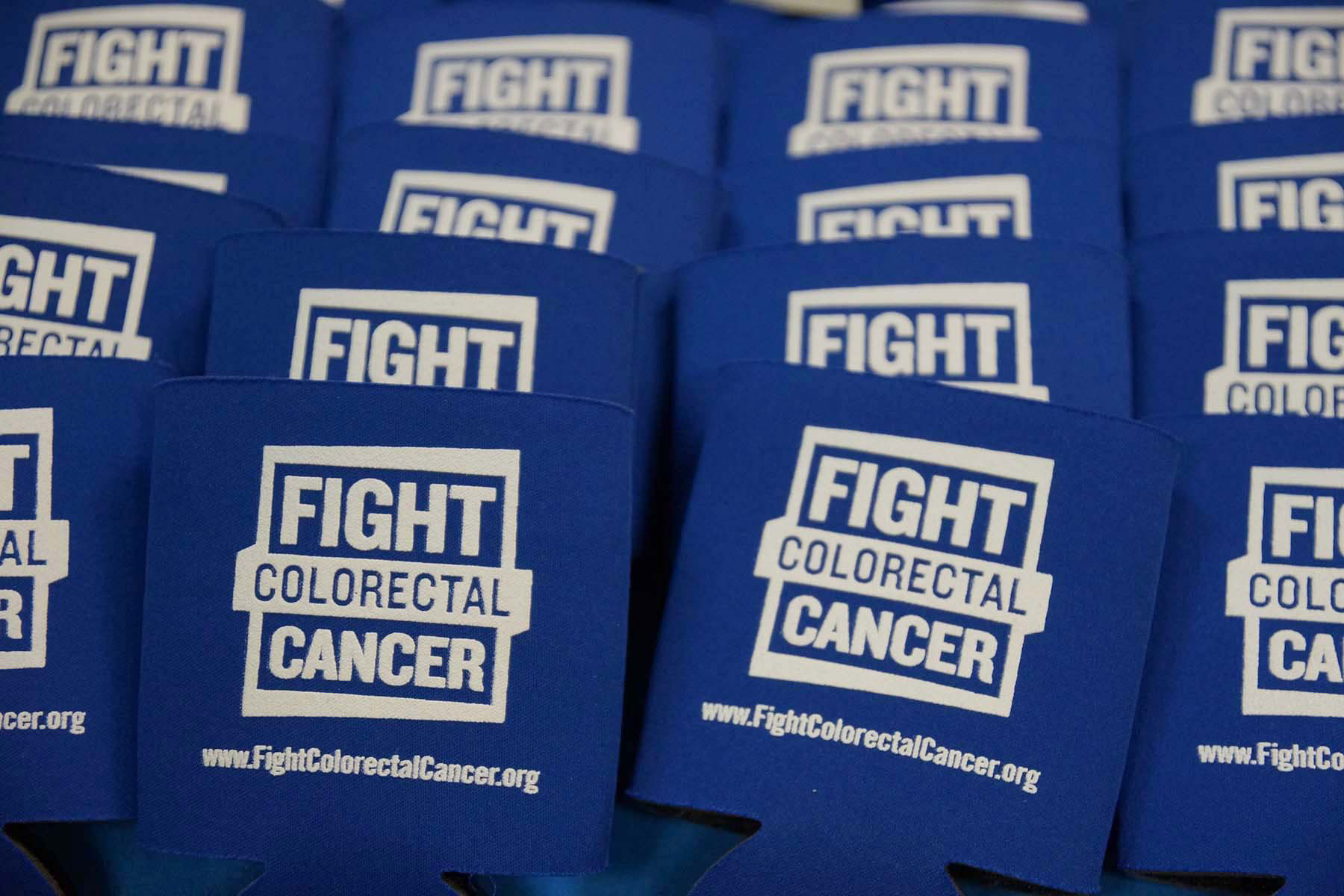
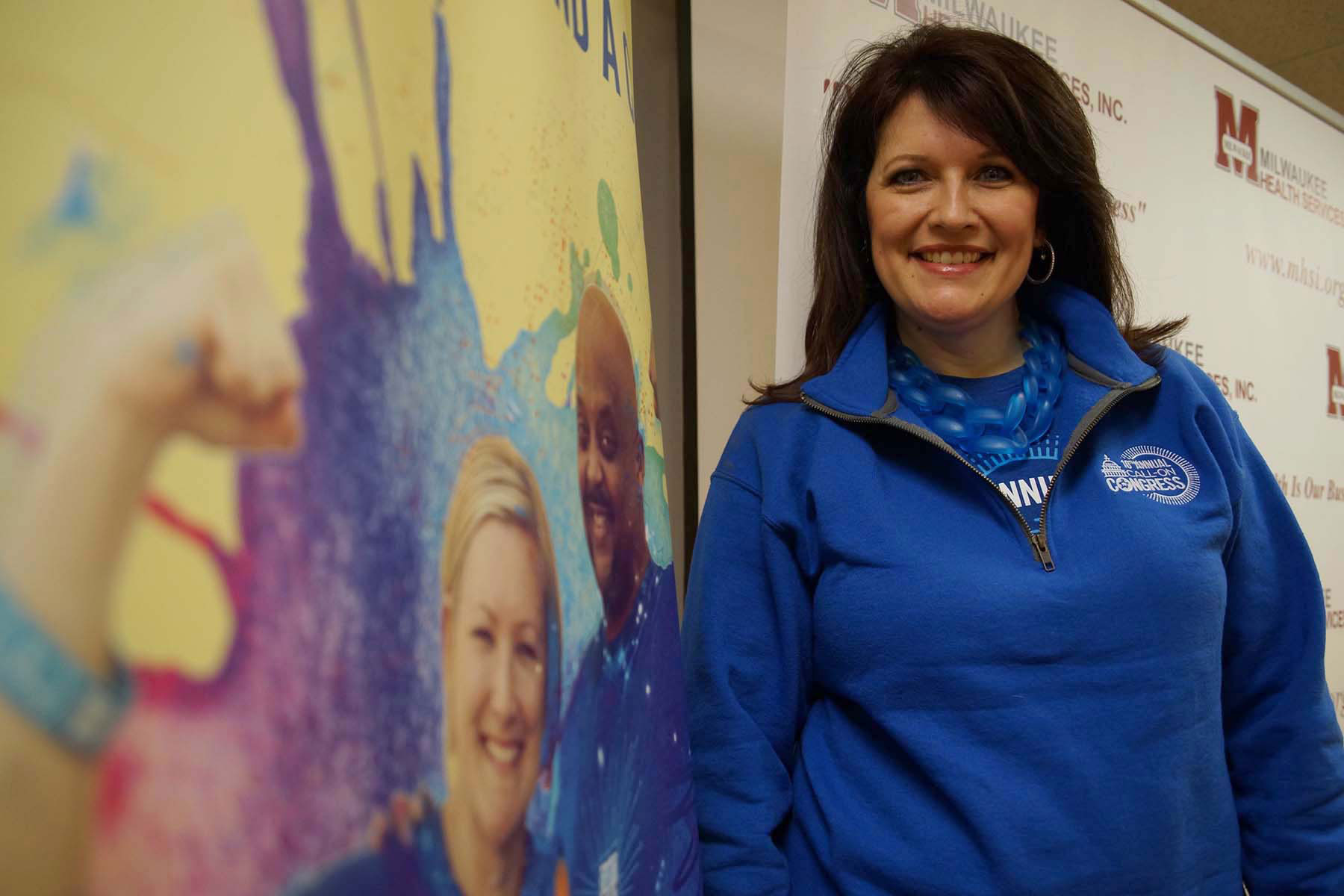
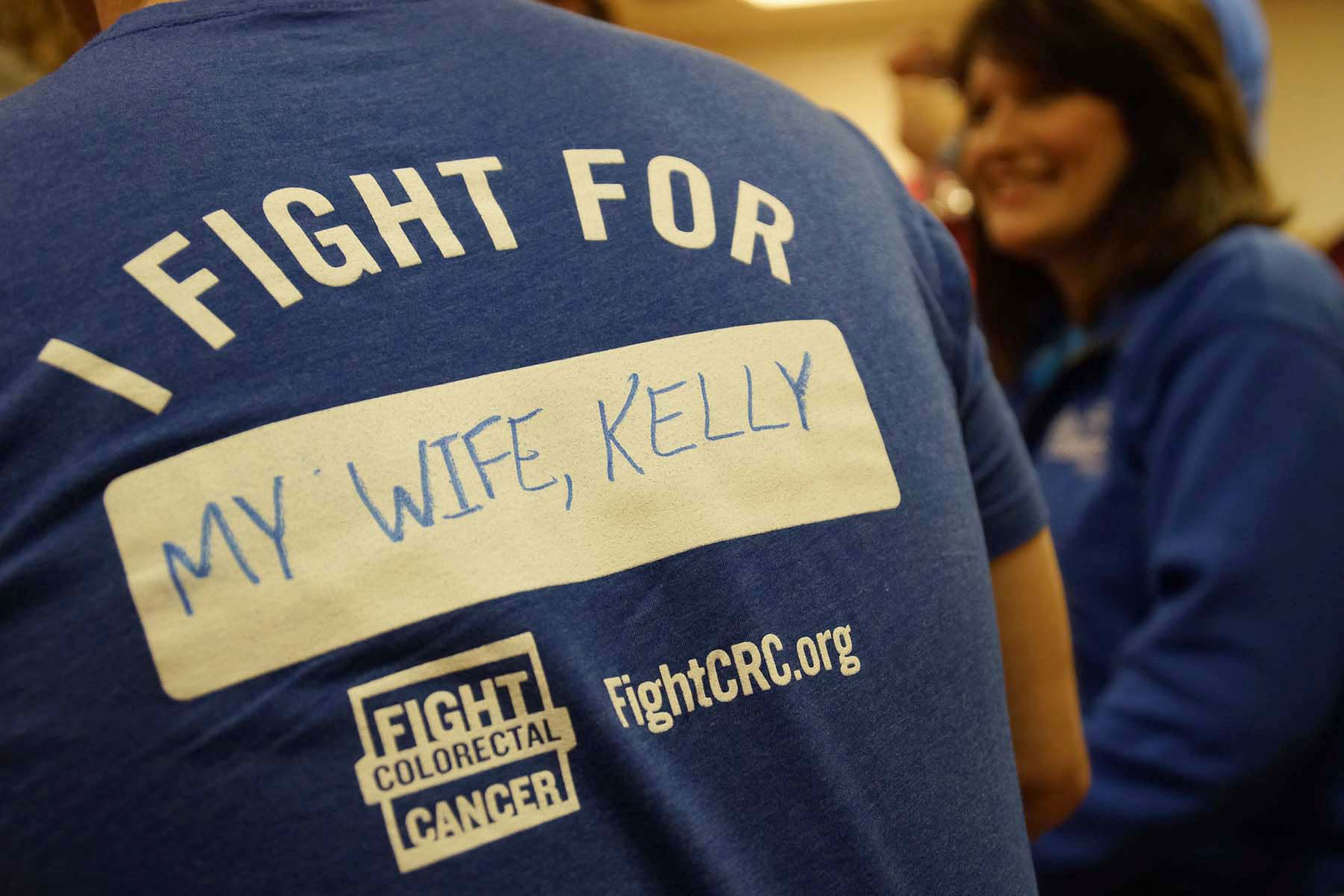
Stage II survivor and Wisconsin Lt. Governor Rebecca Kleefisch shared her cancer story during the One Million Strong Milwaukee Community Health Fair on April 23. Attendees had the opportunity to receive colon, mammogram, dental, HIV/Hepatitis C health screenings, and obtain information on preventative care from medical and research experts.
“People across Wisconsin hear gross stories about my large intestines all the time, but there aren’t a lot of people willing to tell gross stories about their own large intestines, and we need you to,” said Kleefisch. “We need you to talk about your own personal health care experience. We need you to share the things that are available, like our advocates and partners do every single day.”
The Isaac Coggs Heritage Health Center hosted the health seminar, which primarily focused on colorectal cancer. Even though it is the second leading cause of cancer death in the United States, one-third of Americans do not seek screenings for this curable form of cancer. The speakers continued to make this point during the Health Fair, to bring more awareness to the community.
“For African Americans, unfortunately we suffer some of the worst health disparities,” said Dr. Tito Izard, President and CEO of Milwaukee Health Services, Inc. (MHSI).
Because April is National Minority Health Month, MHSI and Fight Colorectal Cancer used the opportunity to educate the public.
“The primary objective of the event is to increase awareness of various health topics and empower our community to take action through the utilization of preventative screenings for health and wellness,” said Pamela Clark, Corporate Communications Specialist for Milwaukee Health Services, Inc.
Colorectal cancer is a preventable cancer. By finding and removing precancerous polyps that can develop into cancer, colorectal cancer can be stopped before it ever starts. Screening for colon cancer can detect it early when it is most curable.
“It is about being deputized as evangelists for this great health care movement. We need to be empowered, but then we need to take that power and do something with it,” said Kleefisch. “There is no excuse not to get good health care in Wisconsin, which offers the second best health care in the entire United States.”
As a former journalist, the Lt. Governor researched the best doctor she could find in 2010 to remove her tumor, which had grown to the size of a grapefruit around her colon and nearing her liver. Kleefisch shared how she still remembered the G.I. doctor telling her the words that 81 people a day in the State of Wisconsin hear, you have cancer. It was especially hard in the middle of her political campaign, and with the loss of her father years earlier from pancreatic cancer.
Two weeks before the November 2010 election day found Kleefisch in surgery, where the tumor was successfully removed. She left the operation cancer-free, however, complications afterwards kept her in recovery. On election night, she was released from the hospital to vote and attend her victory party, only to return to the hospital the next morning for a scheduled surgery. The procedure turned out to be unnecessary.
“At the end of the day, I knew this would be a story I would have to tell. I decided to tell it sooner rather than later. Because I remembered those days in the hospital with my Dad. When I would get off my TV show everyday, and in between executive producing my show for the next week, scouring the internet for stories of hope. Stories that could inspire our family to keep us going until the next thing was invented to save his life,” shared Kleefisch. “And I remember how valuable those stories of hope were for my family. And I thought, if I ever have the opportunity to be that story for someone else, then far be it for me to deny them. So I told my story right away. And actually had the news cameras with me on the first day of my chemo therapy. It was important for me to tell people, and it remains important to share my experience.”
The health fair event was moderated by Andrea Williams, an On-Air Personality with Jammin 98.3 and veteran of the Milwaukee Bucks game performances and broadcasts. Williams also gave an emotional recounting of the loss of her father, and the memory of his fondness for riding a bicycle.
“It was not until I went home to take care of funeral arrangements, that I realized he had ridden his bike to the cancer center that day. His bike was still chained up outside of the cancer center,” said Williams. “You cannot imagine how that was for me. But that bike, right now today, is in my garage. So, I think about my daddy every time I see it.”
The gather was an opportunity for all genders and races to come together to fight Colorectal Cancer, because it can affect anyone. Dr. Izard stressed the need for individuals to be more helpful to family and friends who have risk factors. His concern was that sometimes people are so afraid of the idea of cancer that they just decide to turn their backs on it, and pretend like it will go away. But cancer does not work like that.
“If we all walk away from this meeting and take information back to our family and friends, and we can hopefully help an individual that helps his or her family, that family becomes stronger, which builds stronger communities,” said Dr. Izard. “And when we have stronger communities, we actually reach out and help more individuals. So that that is the cycle we are working on today.”
Emily Piekut, Advocacy Manager from Fight Colorectal Cancer, helped organize the event. The nonprofit organization supports a community of activists, with a mission to empower and champion better policies and support for the research, education, and awareness for all those touched by this disease. As an example of turning tragedy into advocacy, cancer survivor Kelly Kuster shared her personal story with the group in attendance.
Celebrating her 10th year of being cancer-free in December, Kuster was diagnosed with stage IV Colorectal Cancer at age 36. She recently travelled to Washington DC to Call-On-Congress as part of a nationwide initiative for legislation that provides funding for Colorectal Cancer screenings.
“Some of my stories are a little graphic. And the reason why I do that is because we hear stories about survival and we don’t know about the life that went with it,” said Kuster. “One of the reasons why I share these candid facts is because the more we talk about it the more we can raise awareness and that is my purpose as an advocate. Because women often do not make a connection between regular female health issues and Colorectal Cancer symptoms.”
“There isn’t one person that should die from this disease. Not one,” said Mark Koppel, Vice President of Medical Affairs at Exact Sciences.

